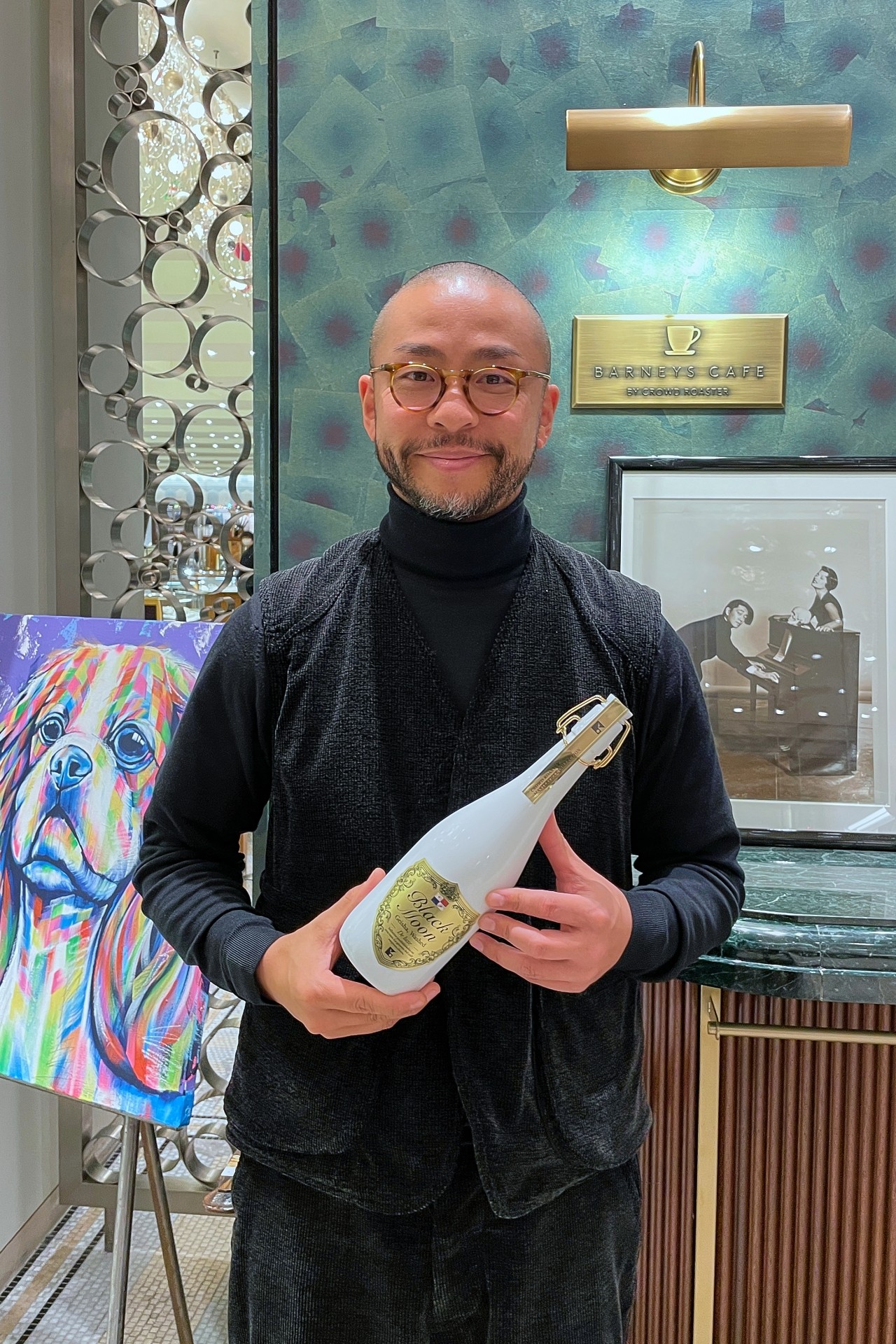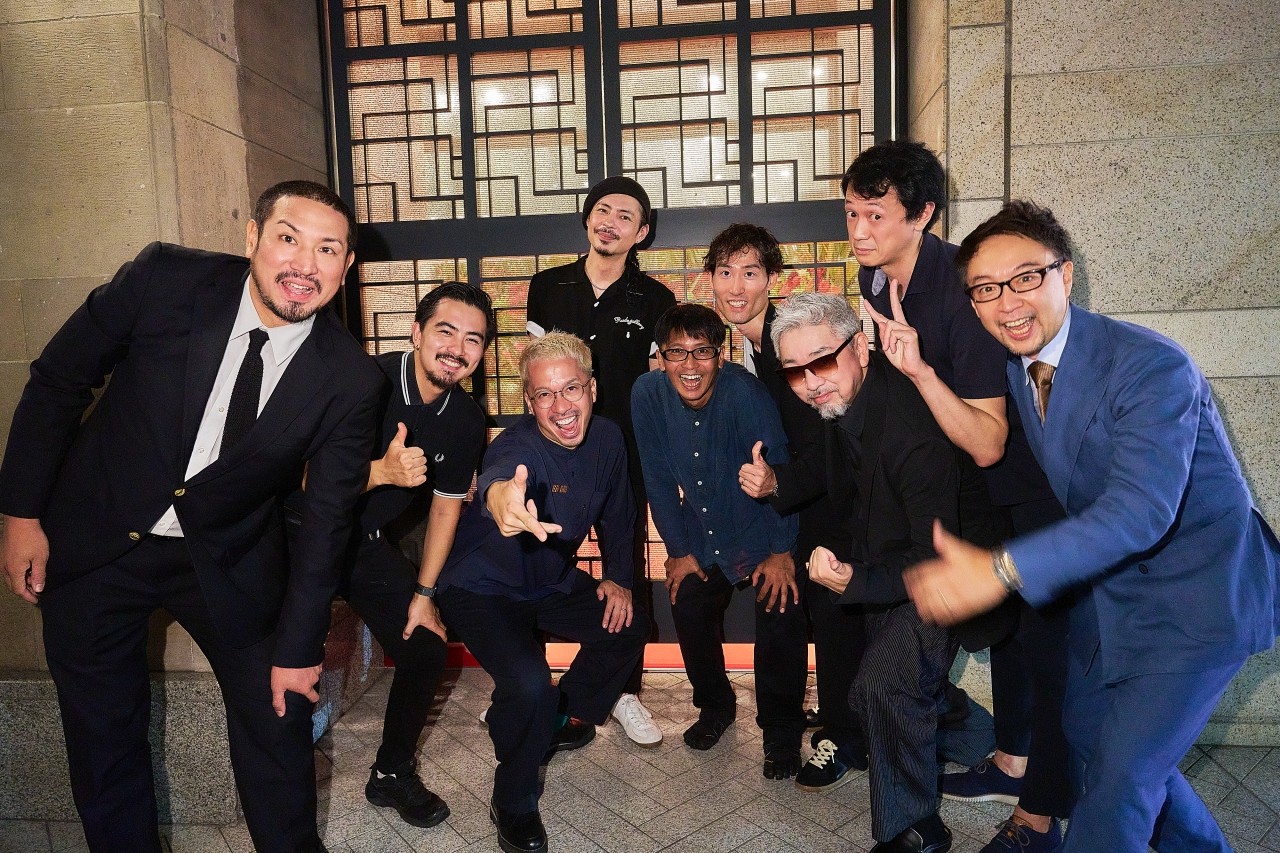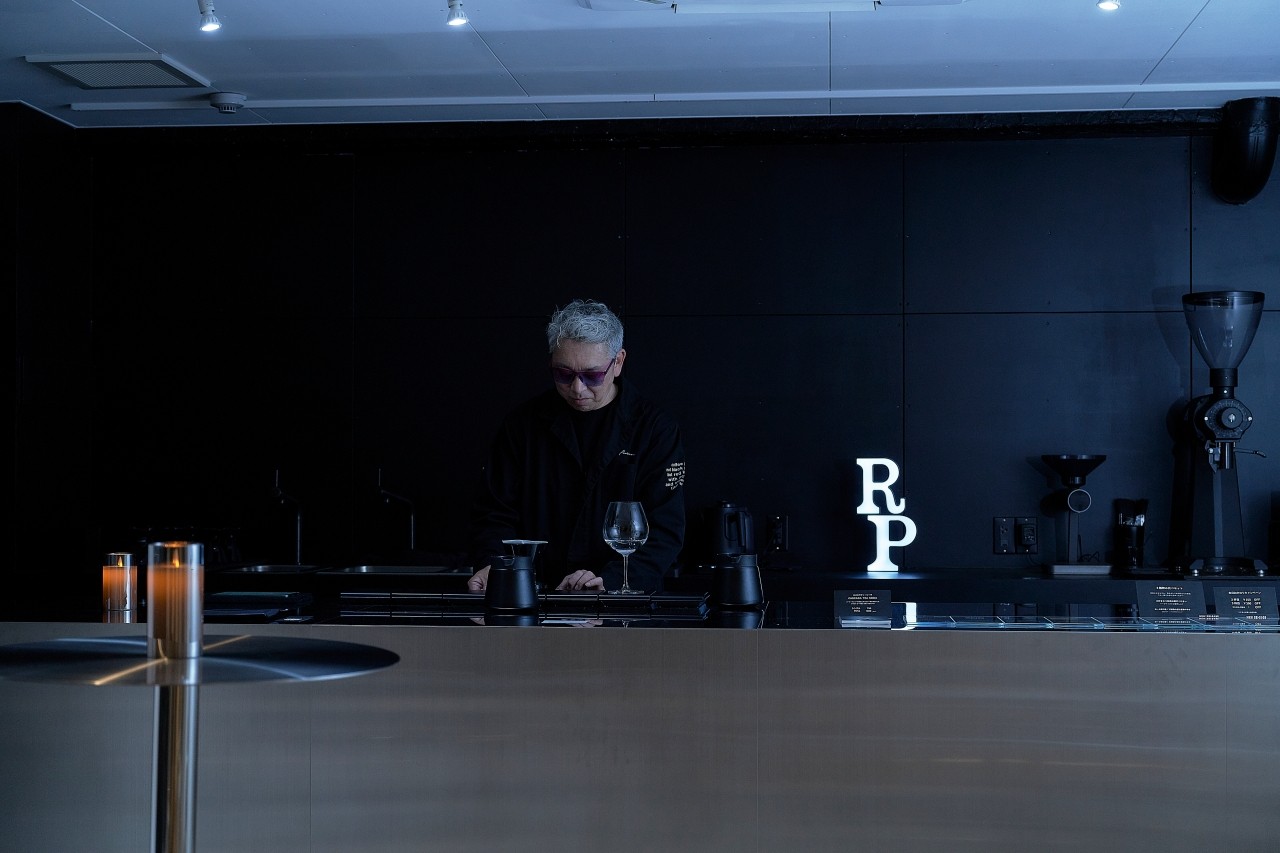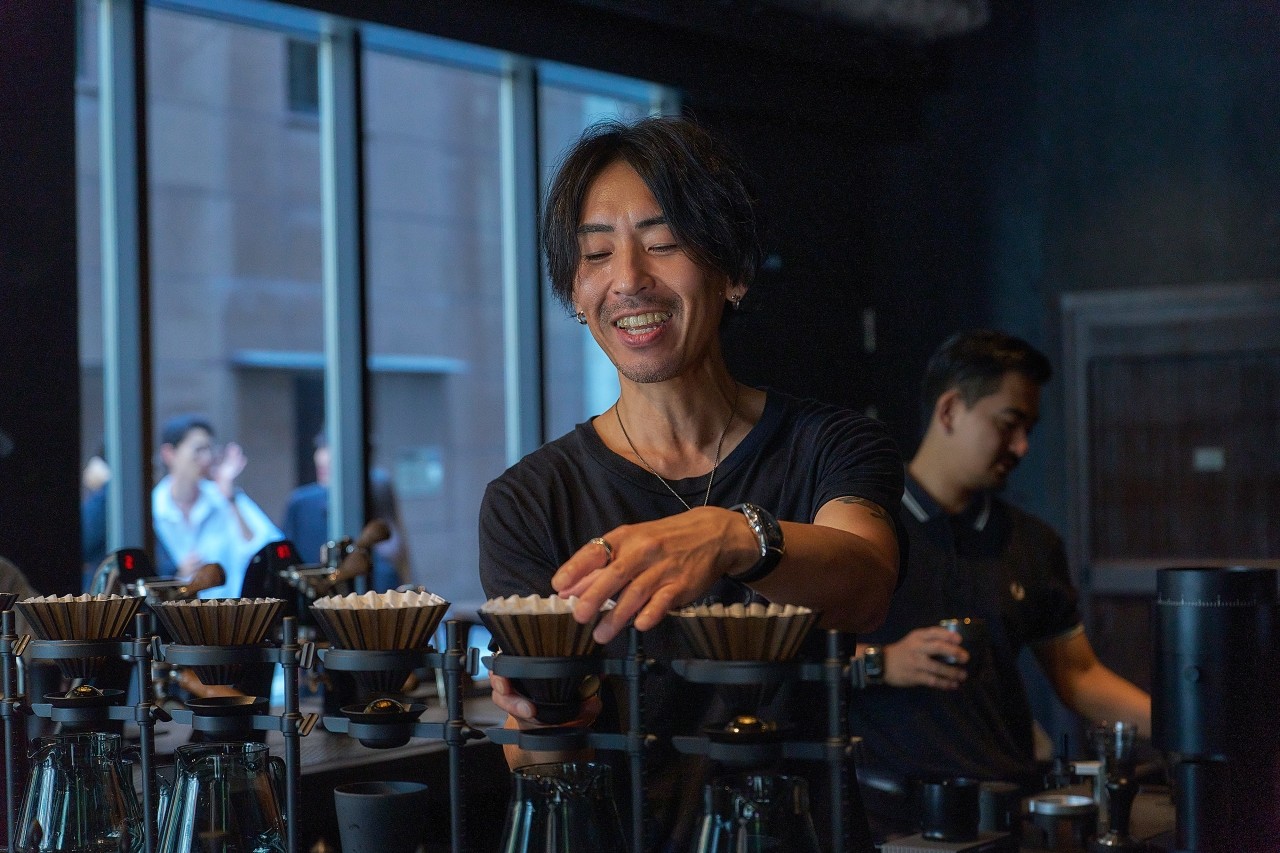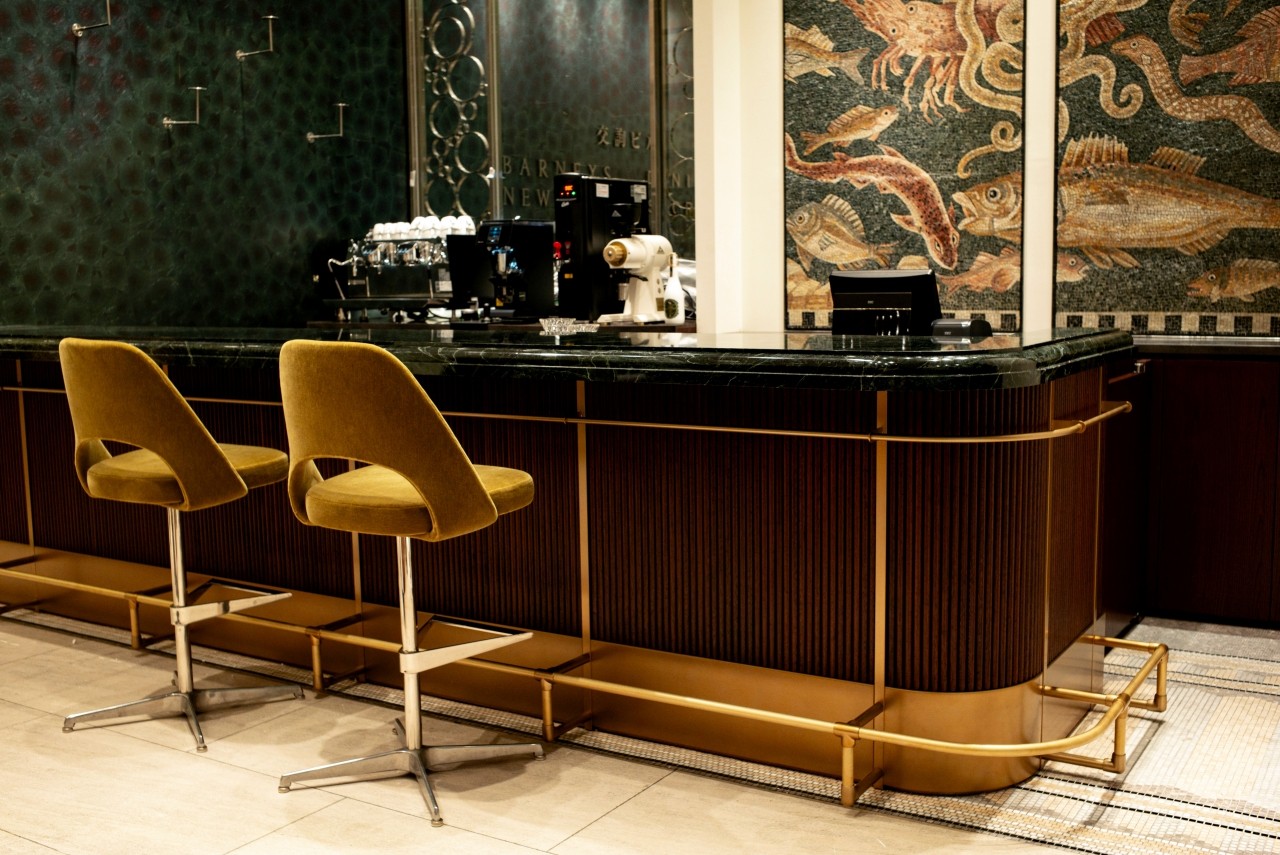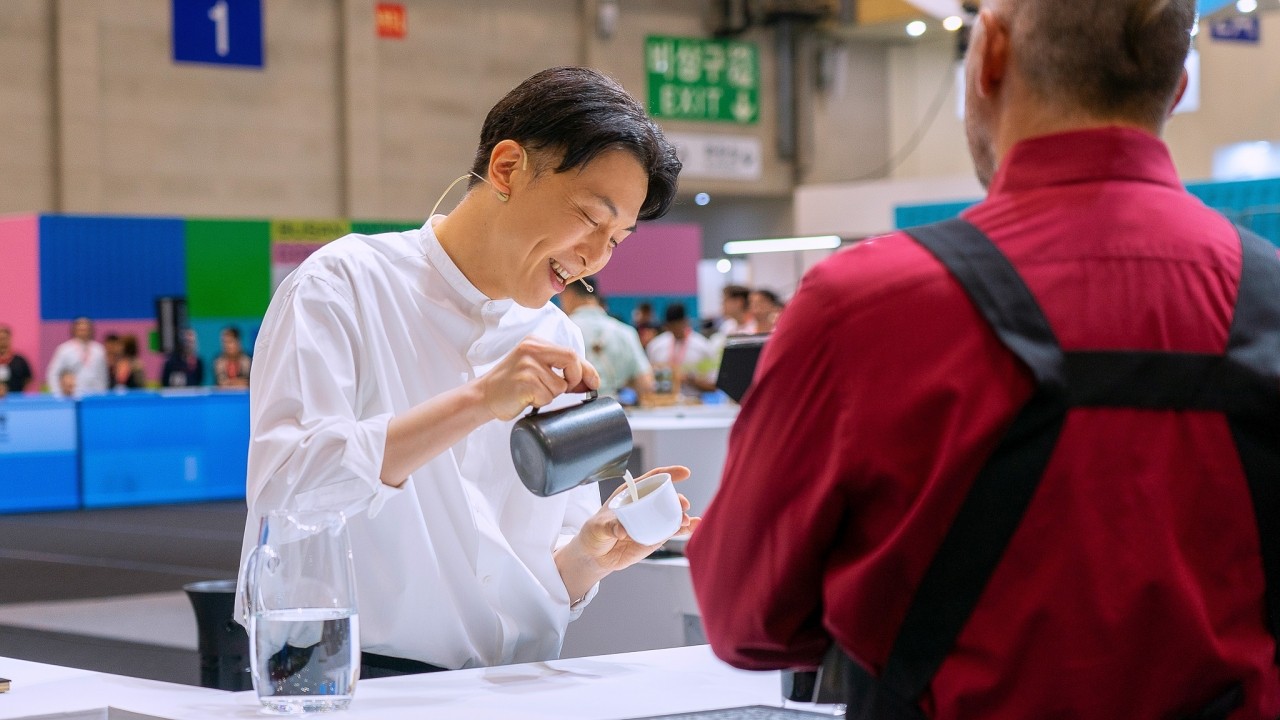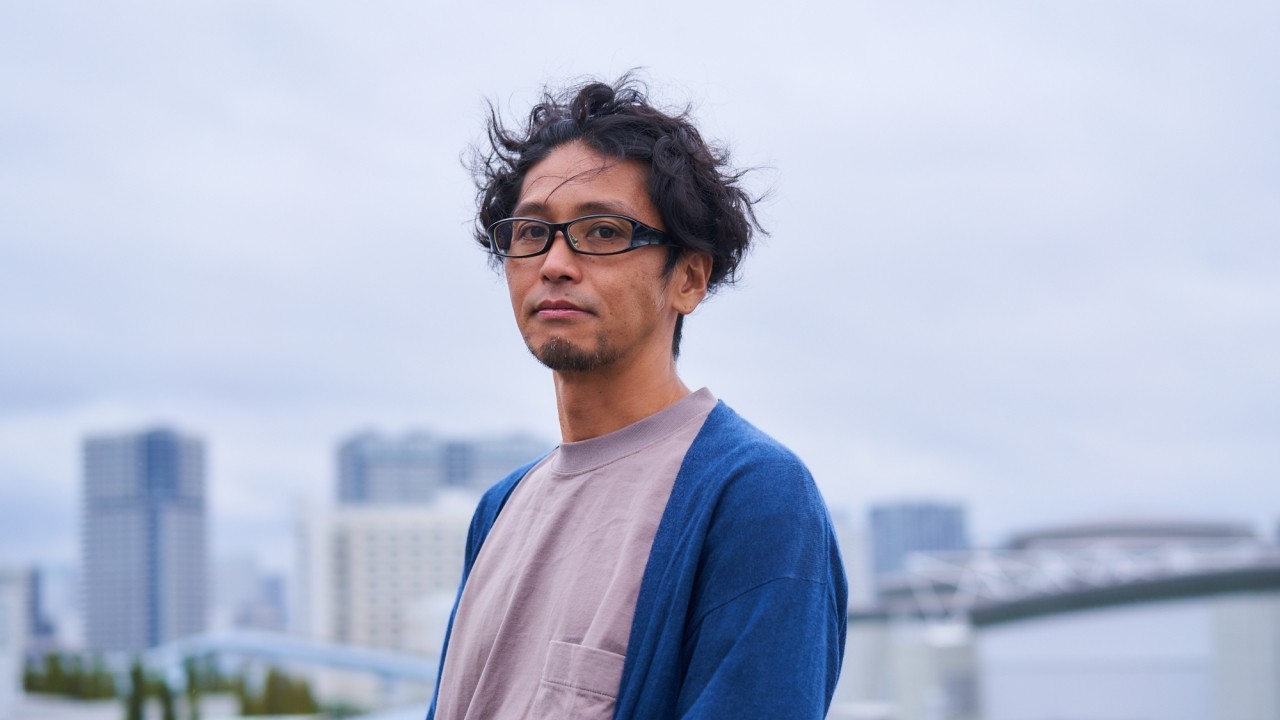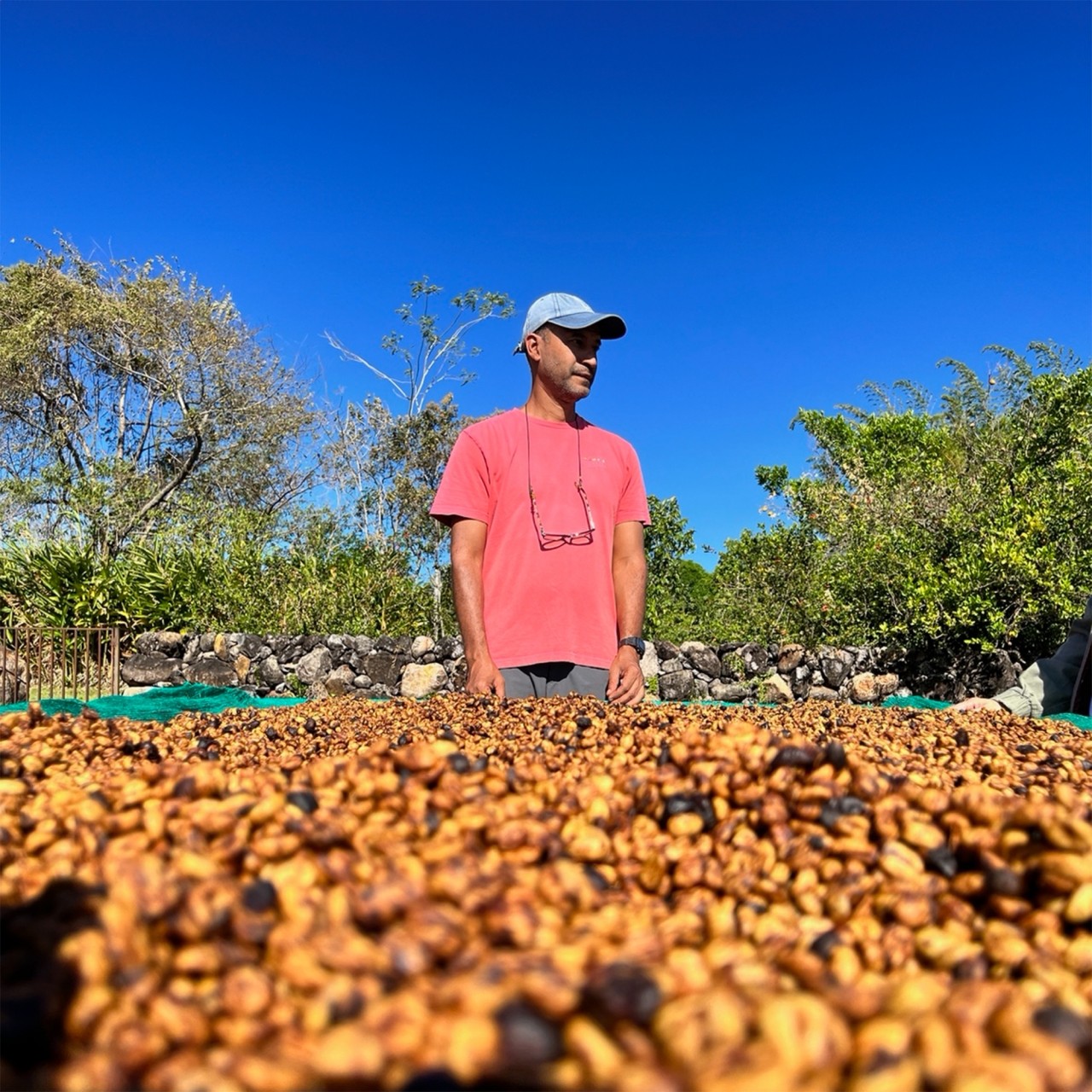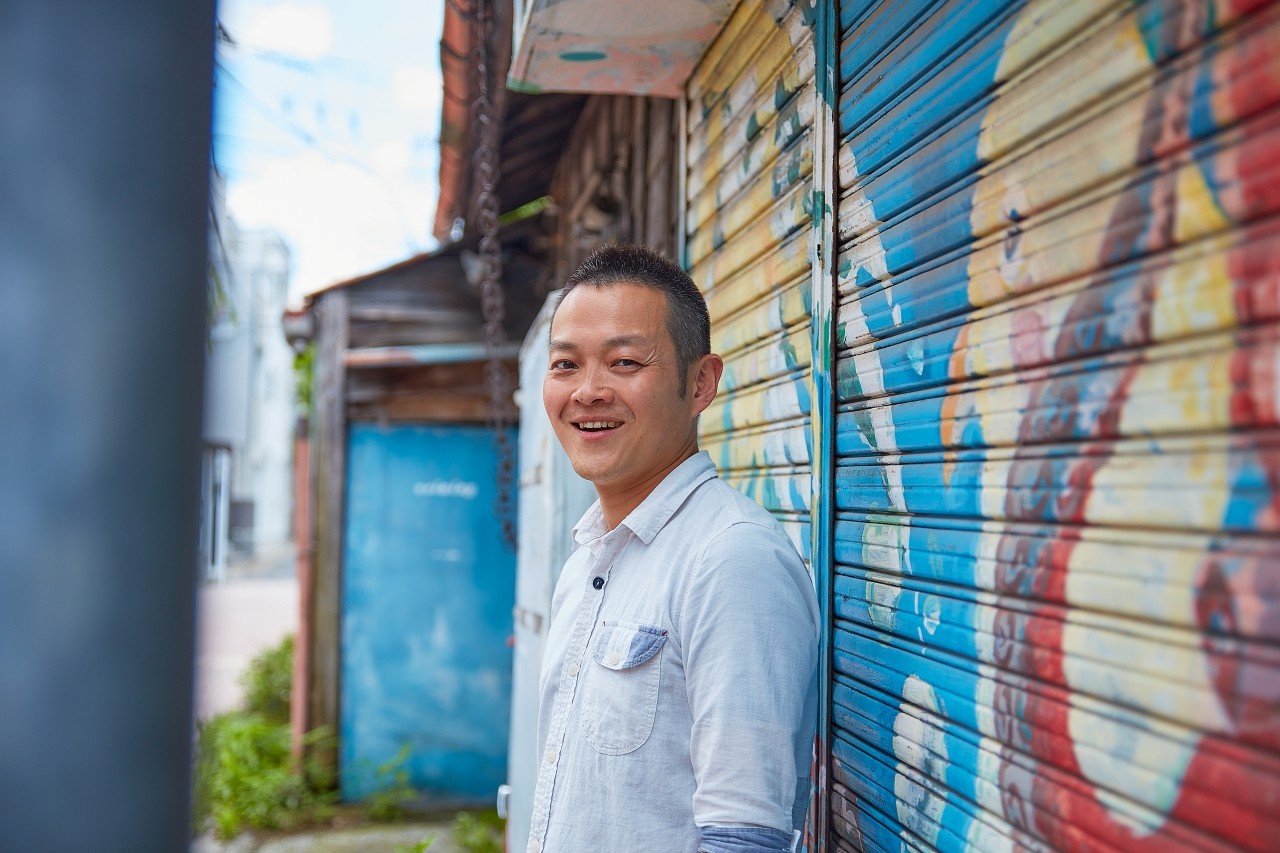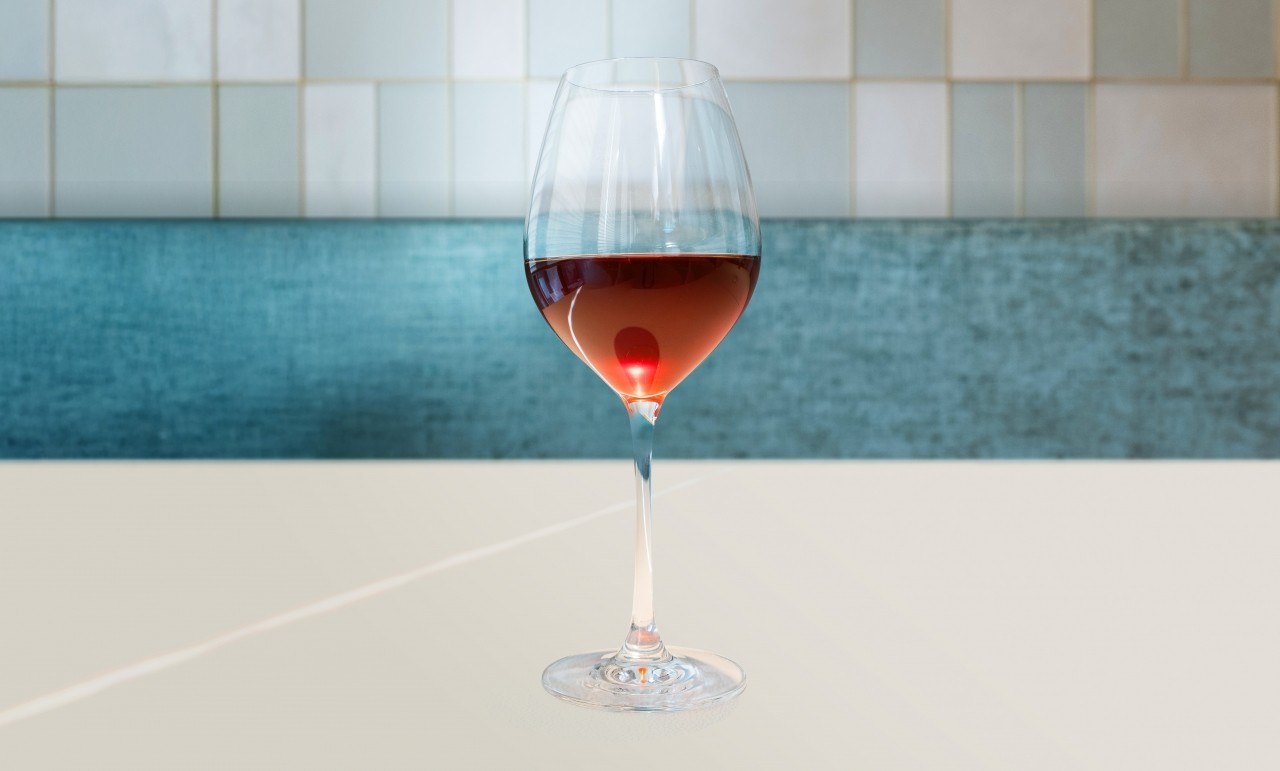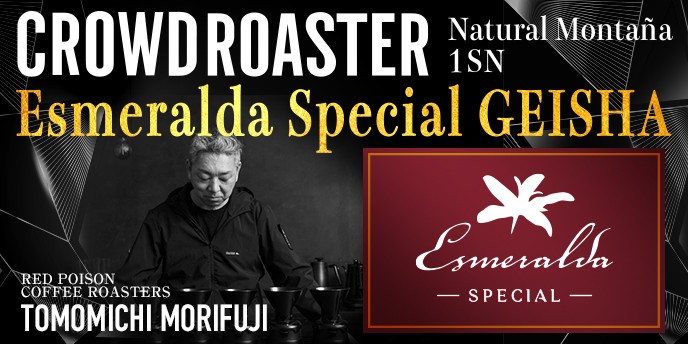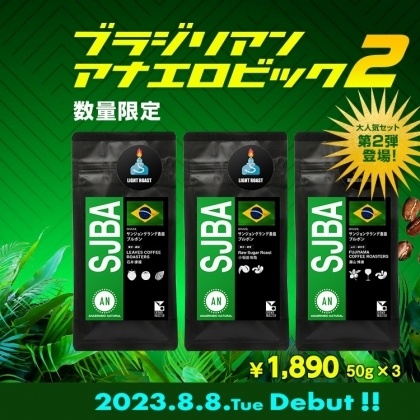RED POISON roaster Tomomichi Morifuji and barista Takayuki Ishitani: cupping discussion on the "Esmeralda Special"!
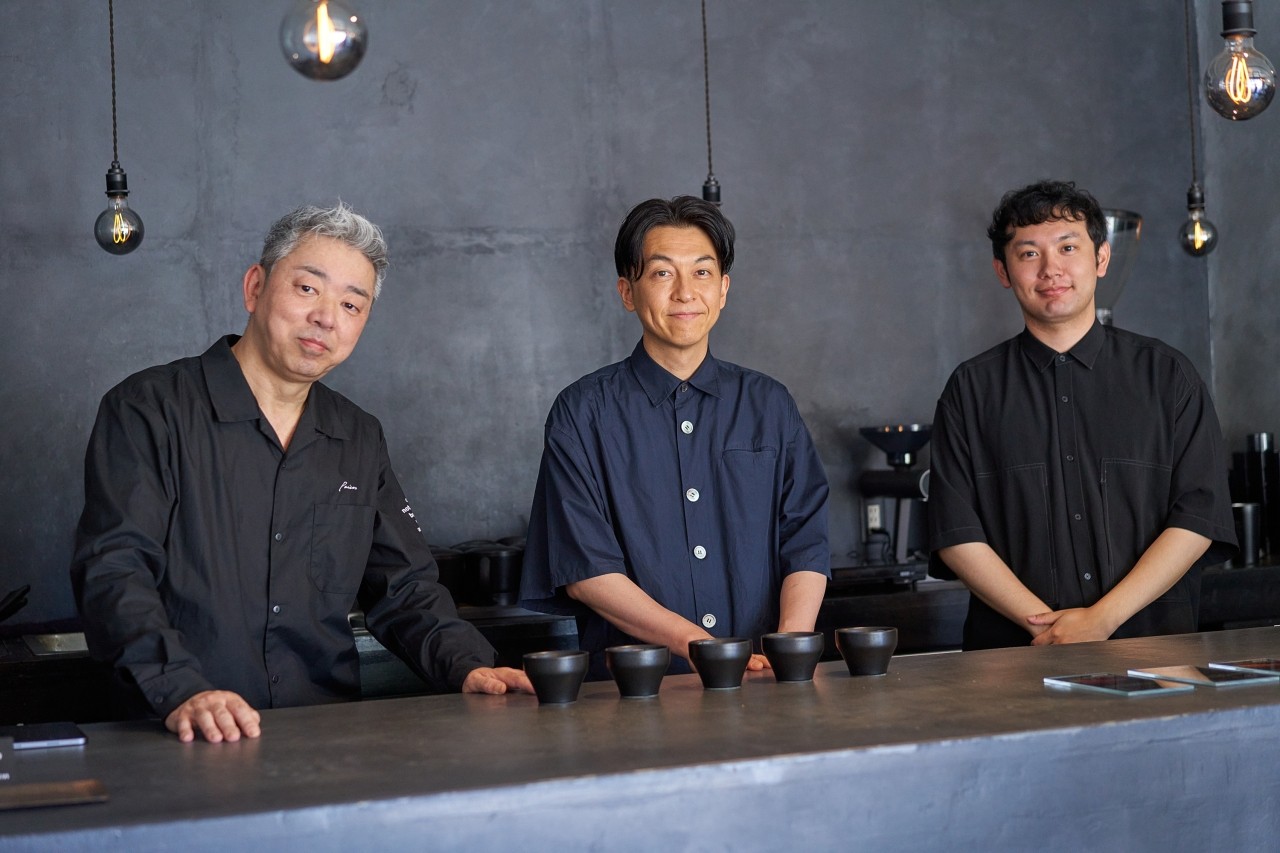
CROWD ROASTER has come up with a truly special project: have one of Japan's leading roasters participating in CROWD ROASTER roast a micro lot of Esmeralda Special, the highest quality brand of Esmeralda Farm, which is synonymous with Panama Geisha .
The third installment of this project, "Esmeralda Special Geisha Natural Montaña 1SN," was roasted by Tomomichi Morifuji of RED POISON, who pursues the ultimate in clear, fruity, red, sweet coffee.
>> See product details
To tell you more about this special Geisha and the appeal of Morifuji 's roasting using a roaster he designed himself, we present a conversation between Tomomichi Morifuji and barista Takayuki Ishitani, Japan Barista Champion and advisor to CROWD ROASTER .
We had a chat while cupping freshly roasted coffee at RED POISON COFFEE ROASTERS.
The third installment of this project, "Esmeralda Special Geisha Natural Montaña 1SN," was roasted by Tomomichi Morifuji of RED POISON, who pursues the ultimate in clear, fruity, red, sweet coffee.
>> See product details
To tell you more about this special Geisha and the appeal of Morifuji 's roasting using a roaster he designed himself, we present a conversation between Tomomichi Morifuji and barista Takayuki Ishitani, Japan Barista Champion and advisor to CROWD ROASTER .
We had a chat while cupping freshly roasted coffee at RED POISON COFFEE ROASTERS.
Cupping impressions
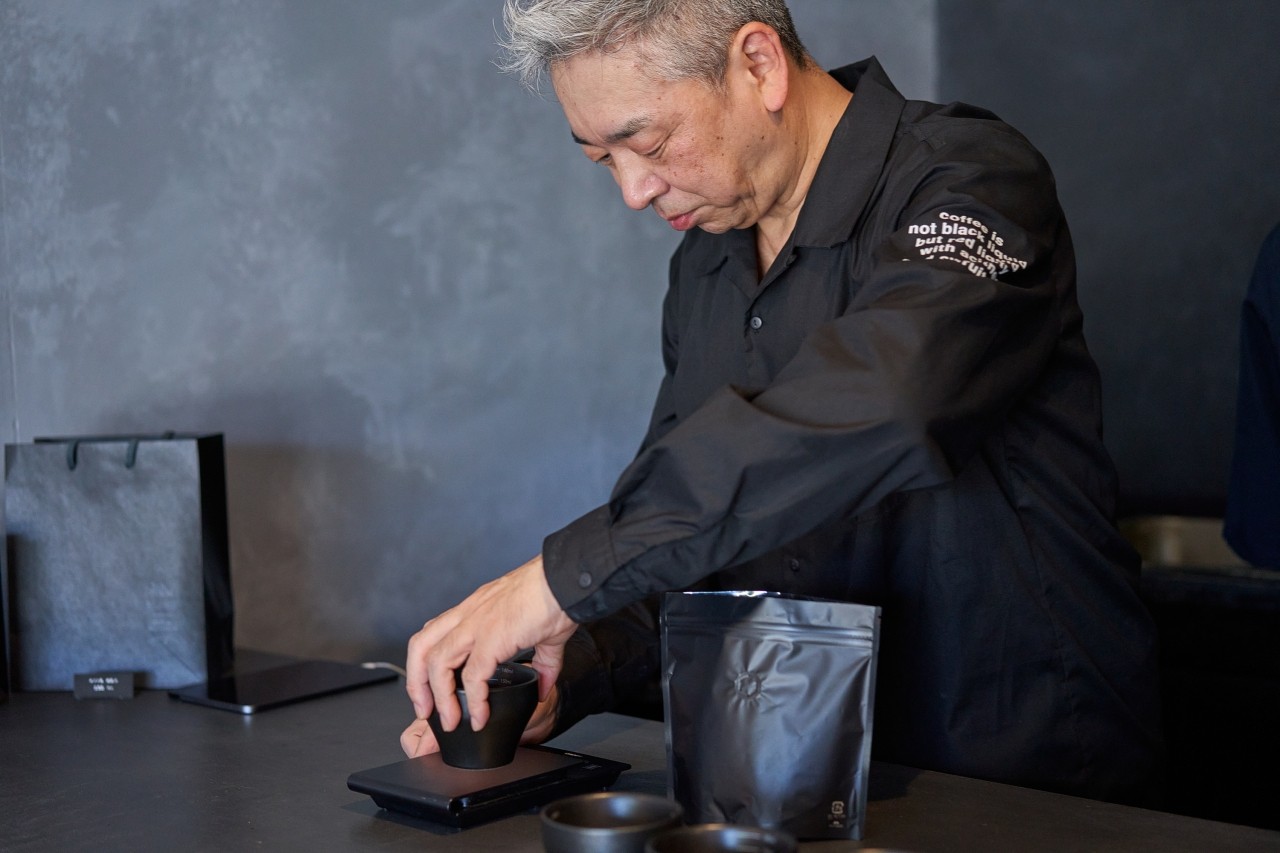
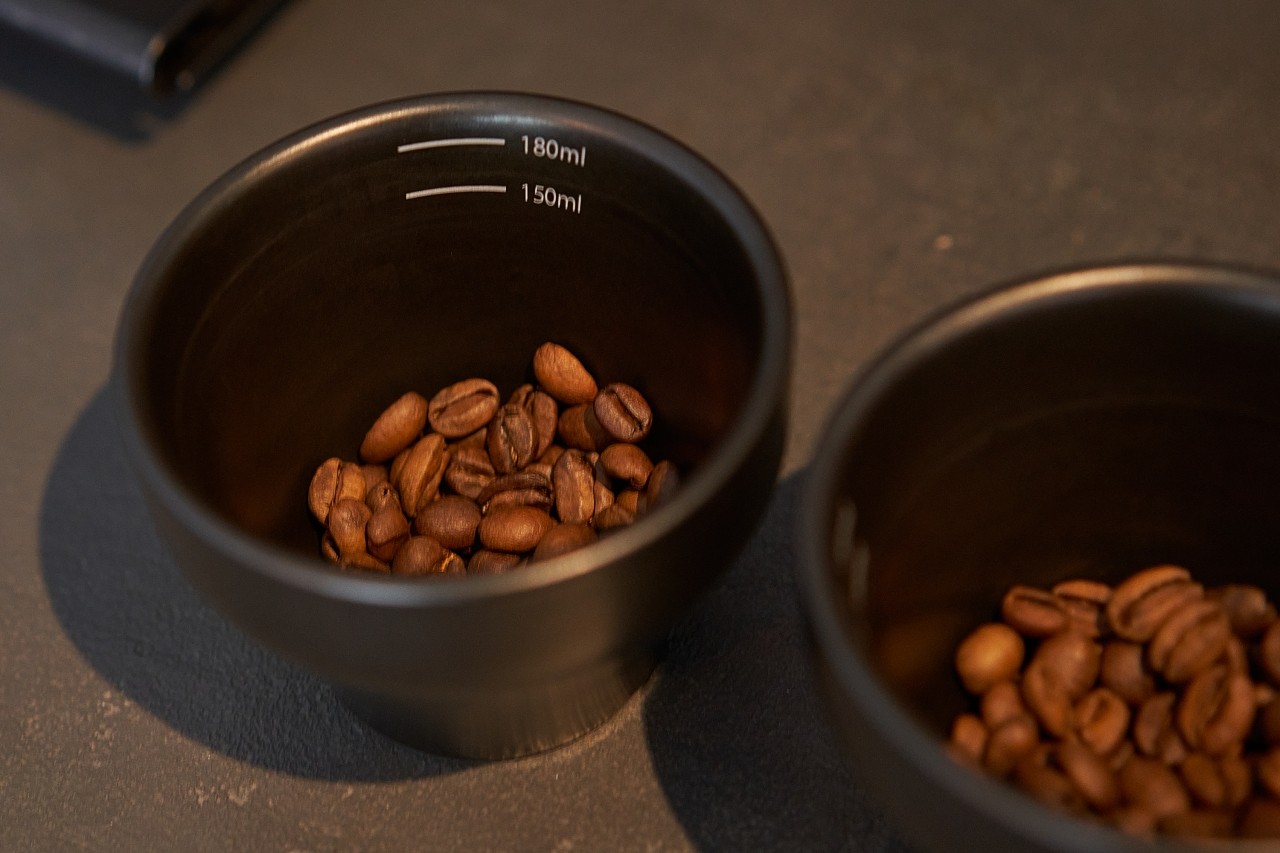
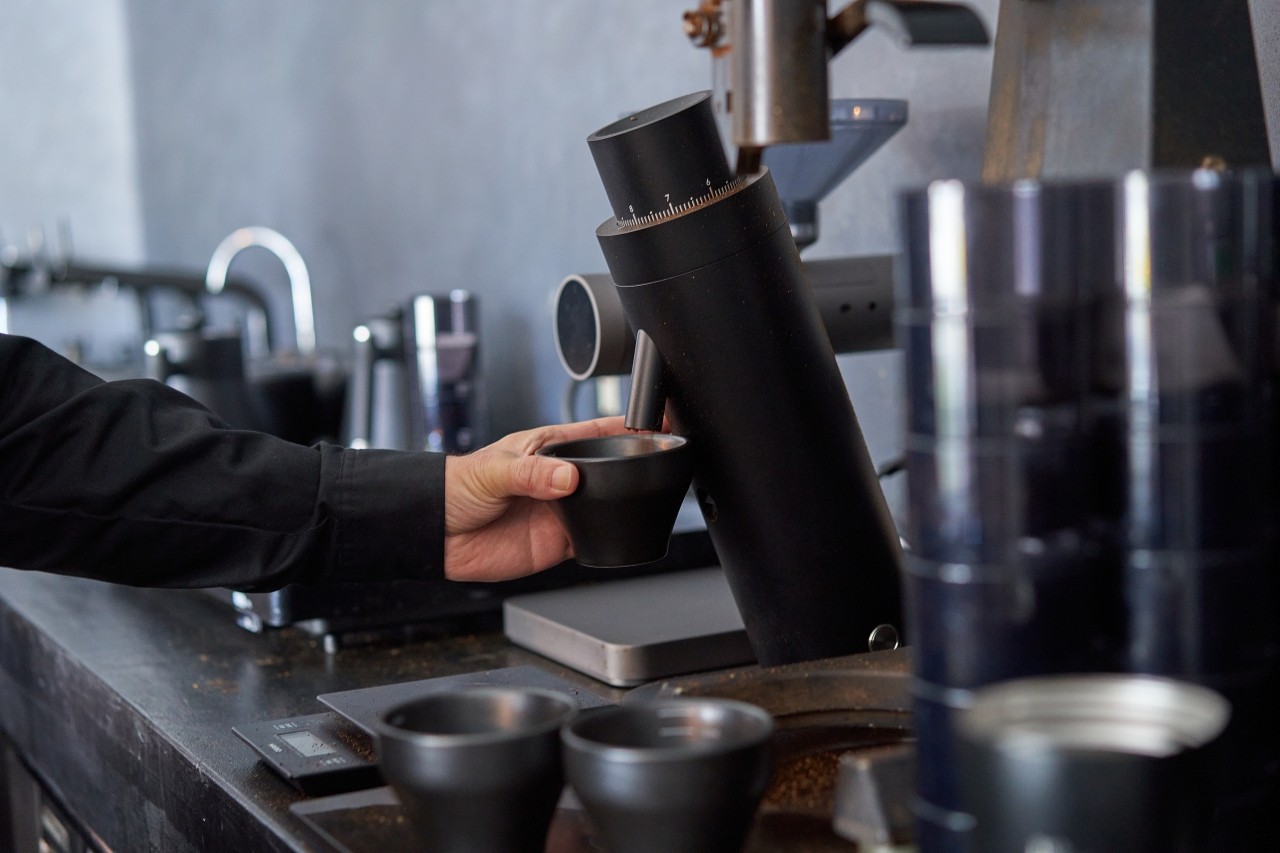
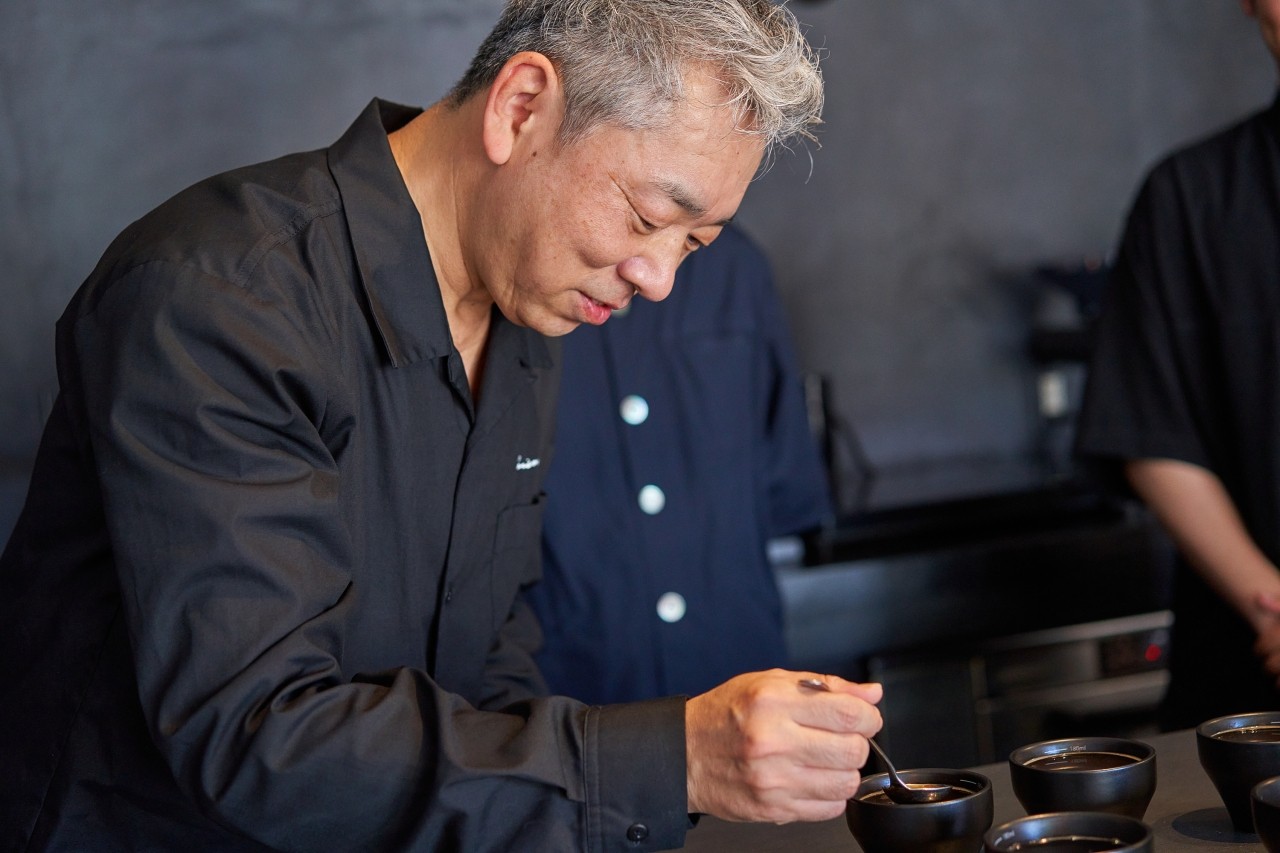
Usukura : What are your impressions of this ``Esmeralda Special Geisha Natural Montana 1SN''?
Morifuji : When I taste a coffee, I think about what my customers think, and I would recommend this coffee to everyone. It's easy to drink and sweet, with a hint of apricot sweetness and a hint of jasmine aftertaste.
Ishiya: I don't think the grape flavor has come out that much yet, it's more like a peach flavor. It starts off thick, and there's Geisha in Shin . As time goes by, the fruity scent around it slowly fades away, but Geisha stays in the core and lasts a long time.
I think the length is quite unique. It's interesting because it's rare to see something this long, and I think it might be due to the way the fire is applied.
Morifuji : When I taste a coffee, I think about what my customers think, and I would recommend this coffee to everyone. It's easy to drink and sweet, with a hint of apricot sweetness and a hint of jasmine aftertaste.
Ishiya: I don't think the grape flavor has come out that much yet, it's more like a peach flavor. It starts off thick, and there's Geisha in Shin . As time goes by, the fruity scent around it slowly fades away, but Geisha stays in the core and lasts a long time.
I think the length is quite unique. It's interesting because it's rare to see something this long, and I think it might be due to the way the fire is applied.
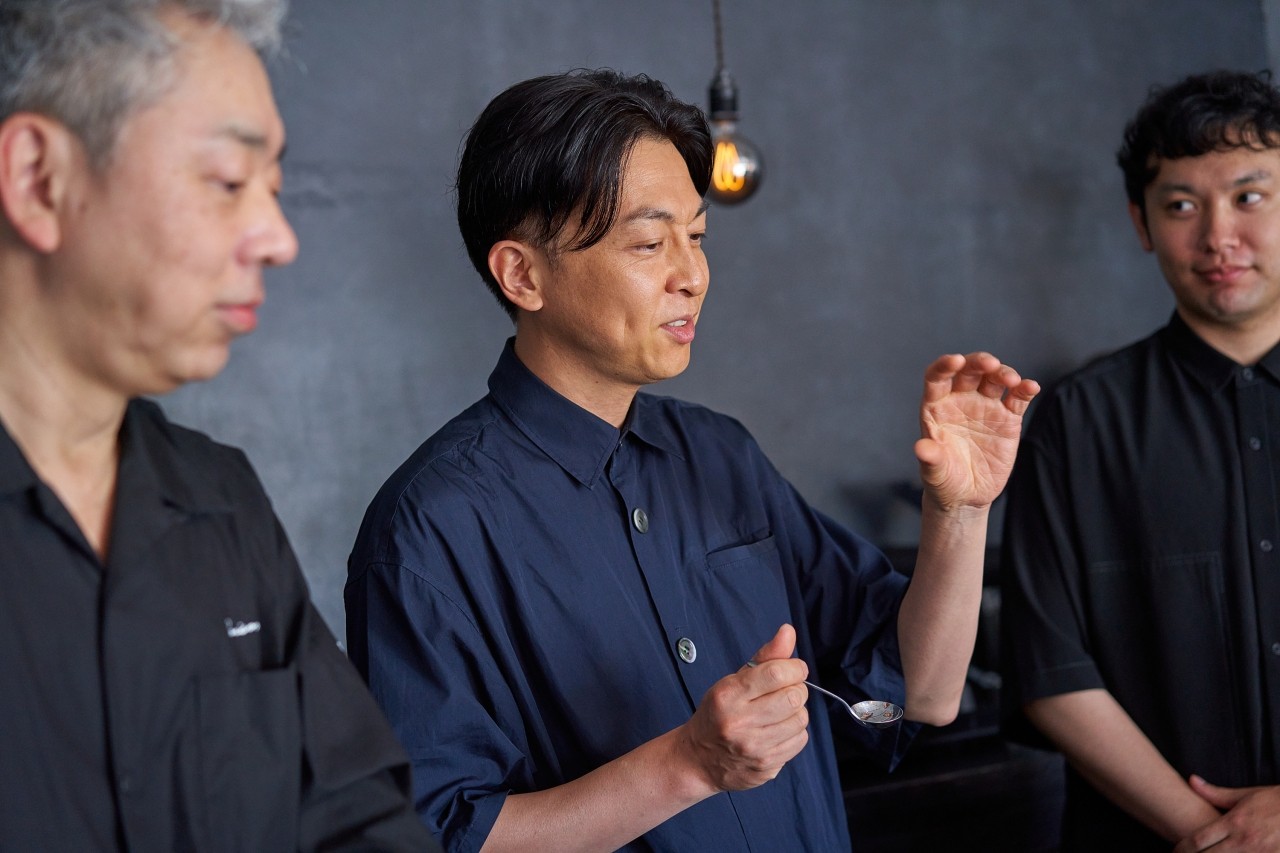
Usukura : How has your impression changed since it cooled down?
Morifuji : I think the citrus flavor has come out better.
Ishiya: That's right. It has a citrus taste, and this certain flavor is there even when it's warm, so that's also a strange feeling. It's thick, but it's there even when it's warm... Usually, it thickens quite a bit after it cools down, and the flavor comes out.
Morifuji : I think that the change in flavor caused by temperature change is largely due to the way the water is removed. To make it consistently delicious, I think it's best to give it as uniform a finish as possible. This is just my imagination, but if you try to get the center and outside of the coffee beans roasted to the same degree and have the water removed to the same degree, I think the flavor won't fade even when it cools down.
Ishiya: It's also really easy to drink. It feels like everything is wrapped up in it, and it gives off a very soft impression, which I think is great.
Morifuji : I think that's typical of our roasting style. I think about my customers, so I want as many people as possible to say that it's delicious. I also like roasts that are easy to drink.
There are still some customers who don't like sour flavors, but when I serve Geisha and tell them, "Although it's called sour, it's actually a sweet, ripe sourness like fruit," I think their perception of sourness will change completely.
Morifuji : I think the citrus flavor has come out better.
Ishiya: That's right. It has a citrus taste, and this certain flavor is there even when it's warm, so that's also a strange feeling. It's thick, but it's there even when it's warm... Usually, it thickens quite a bit after it cools down, and the flavor comes out.
Morifuji : I think that the change in flavor caused by temperature change is largely due to the way the water is removed. To make it consistently delicious, I think it's best to give it as uniform a finish as possible. This is just my imagination, but if you try to get the center and outside of the coffee beans roasted to the same degree and have the water removed to the same degree, I think the flavor won't fade even when it cools down.
Ishiya: It's also really easy to drink. It feels like everything is wrapped up in it, and it gives off a very soft impression, which I think is great.
Morifuji : I think that's typical of our roasting style. I think about my customers, so I want as many people as possible to say that it's delicious. I also like roasts that are easy to drink.
There are still some customers who don't like sour flavors, but when I serve Geisha and tell them, "Although it's called sour, it's actually a sweet, ripe sourness like fruit," I think their perception of sourness will change completely.
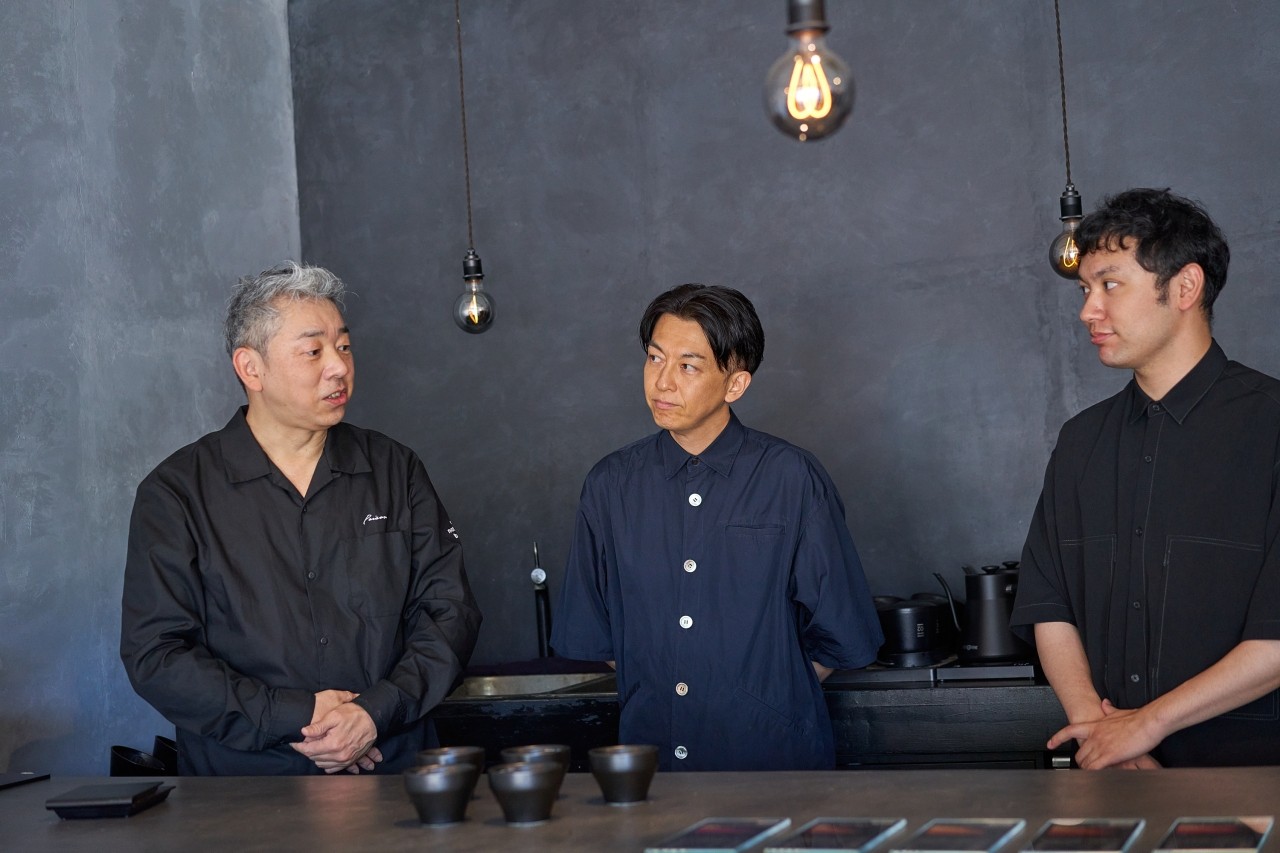
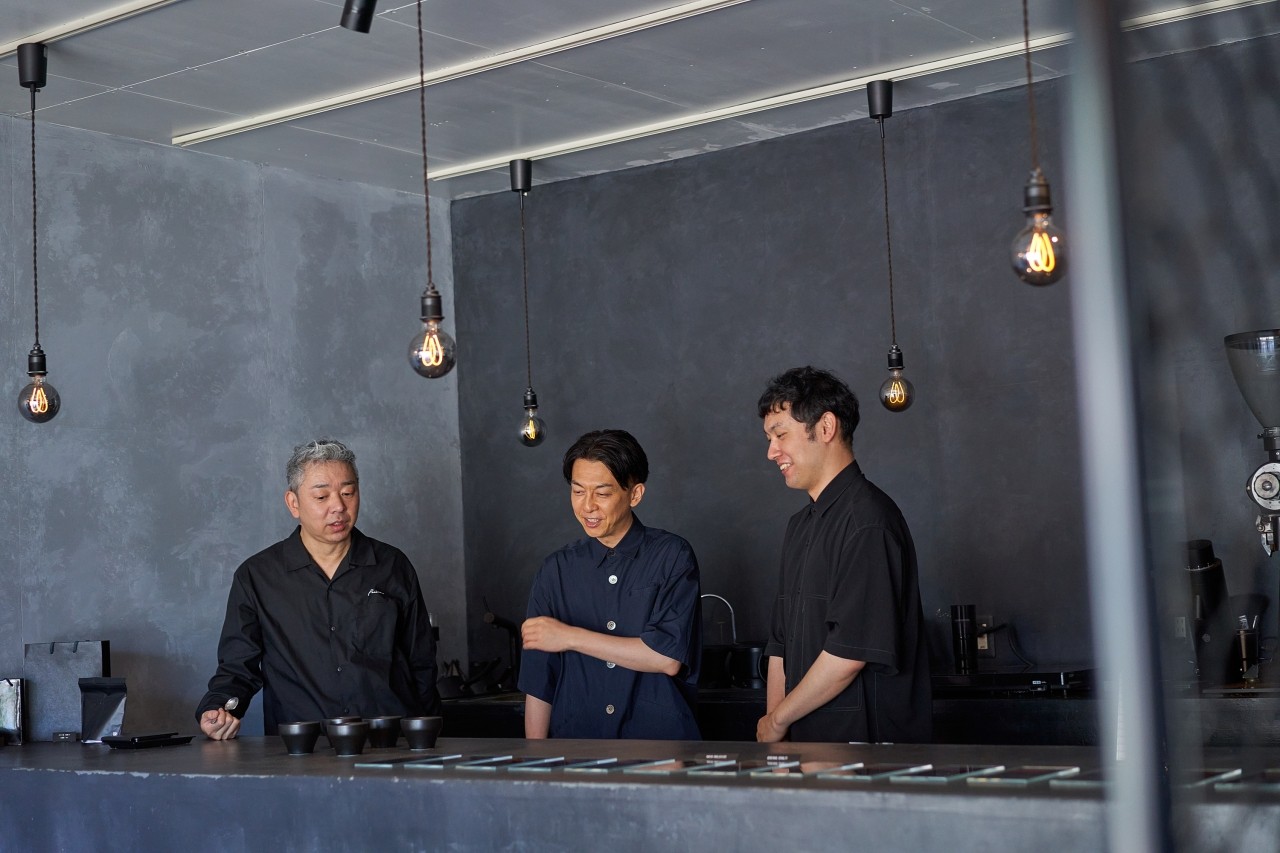
Our original roasting machine makes it possible to roast delicious coffee down to the last drop
Usukura : As Ishitani-san mentioned, were you conscious of the long after-effect when roasting this time?
Morifuji : That's right. Normally we would stop roasting at around 208℃, but we went for 206℃. Because it's natural, it's easy to get a fragrant finish, but we thought about stopping roasting quickly to maintain the citrus flavor and balance it out. The citrus flavor lingers in the aftertaste, with a fusion of sweetness and citrus.
Usukura : Were there any difficult parts?
Morifuji : At first, I didn't know when to stop roasting.
Panama Geisha is hard and has a lot of moisture, so if you don't drain it properly at the beginning, the water won't come out and the flavor won't develop. However, if you drain it too much, the ingredients will come out and it will taste hollow, so it's difficult to judge. That's why I think the degree of draining is what gives each shop its unique characteristics.
Ultimately, I want to make coffee that has a good texture, and although it may seem a bit cliché, I like coffee that is silky, smooth, and viscous.
I think the texture also changes greatly depending on the amount of water removed. Remove only the necessary parts at the necessary time. It's not possible to see everything numerically, so this is just my imagination.
Morifuji : That's right. Normally we would stop roasting at around 208℃, but we went for 206℃. Because it's natural, it's easy to get a fragrant finish, but we thought about stopping roasting quickly to maintain the citrus flavor and balance it out. The citrus flavor lingers in the aftertaste, with a fusion of sweetness and citrus.
Usukura : Were there any difficult parts?
Morifuji : At first, I didn't know when to stop roasting.
Panama Geisha is hard and has a lot of moisture, so if you don't drain it properly at the beginning, the water won't come out and the flavor won't develop. However, if you drain it too much, the ingredients will come out and it will taste hollow, so it's difficult to judge. That's why I think the degree of draining is what gives each shop its unique characteristics.
Ultimately, I want to make coffee that has a good texture, and although it may seem a bit cliché, I like coffee that is silky, smooth, and viscous.
I think the texture also changes greatly depending on the amount of water removed. Remove only the necessary parts at the necessary time. It's not possible to see everything numerically, so this is just my imagination.
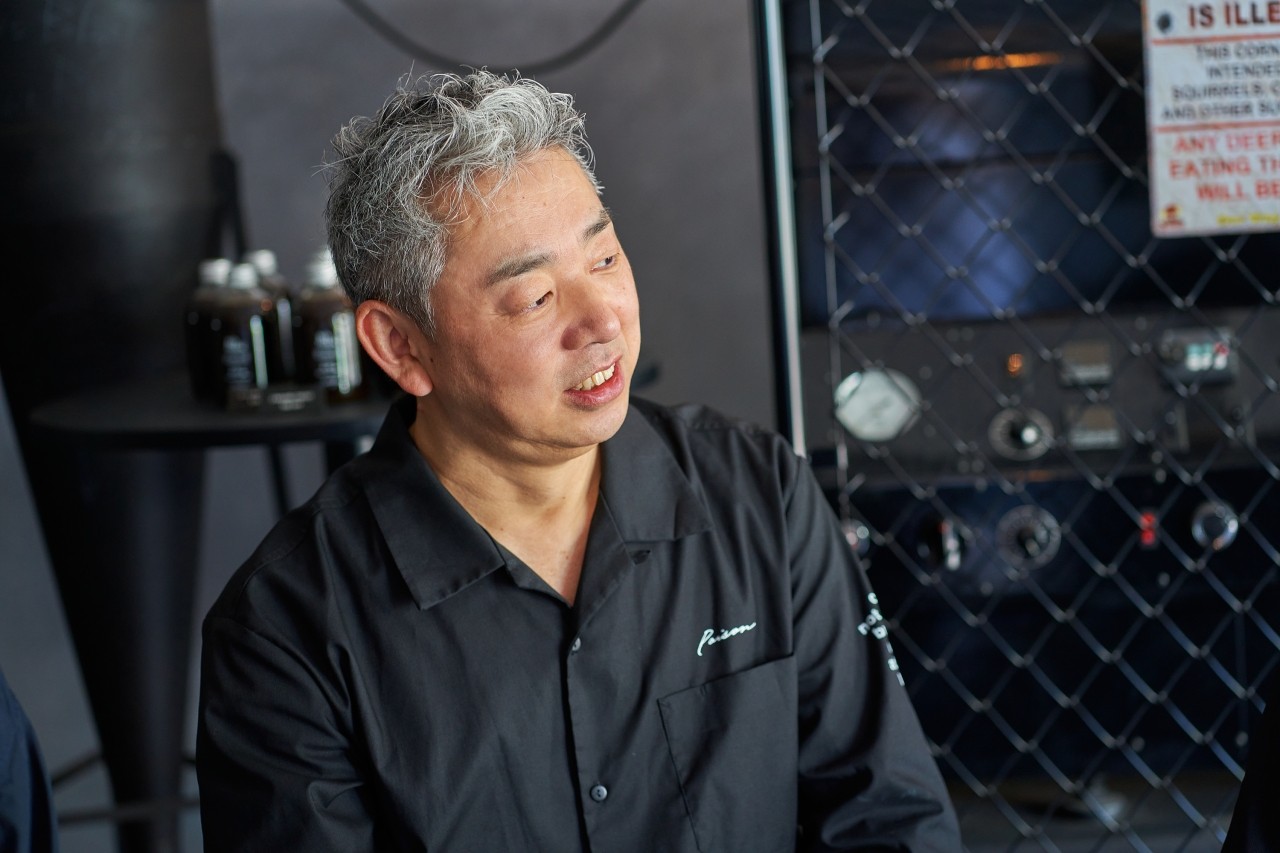
Usukura : Other roasters said that it was difficult because they had to change their usual roasting methods.
Morifuji : That's true, I understand.
Our roaster is designed to store less heat. The higher the heat storage capacity of the roaster, the more stable the roast. But on the other hand, it's difficult to change it midway. After all, it's hard to know what's best for each bean, so I thought it would be nice to have a roaster that allows you to make corrections even if you feel like something is off midway.
In that sense, when it comes to beans that are difficult to drain, such as those roasted for the first time, the outcome is determined by the initial heat if you use a roaster with high heat retention. With this roaster, you can quickly turn the heat up or down if you think you've put in too much, so it's easy to handle new beans.
Ishitani: Morifuji 's roasting machine is custom-made, right?
Morifuji : It's our own original. We bake 2 kilos each time, but the maximum heat is about the same as a 5 kilo pot, so the maximum heat and exhaust volume are about twice as much as the capacity. However, we can also make the heat very low, and we can finely control the exhaust, so we can create a variety of flavors.
Usukura : I imagine that the way you roast may be different between winter and summer, but is there anything you pay particular attention to in summer?
Morifuji : Surprisingly, my roasting doesn't change that much even in the summer. I just try to keep the bottom temperature more or less the same. However, there were times when I struggled in the summer, and it was hard to remove excess moisture, so I couldn't drain it properly.
That's why I wanted a roaster that could be used all year round. For example, you can't tell a customer that it's not very tasty because it's summer (laughs). We have broadened the range of control of the roaster so that we can achieve the final flavor we are aiming for no matter what season it is.
Morifuji : That's true, I understand.
Our roaster is designed to store less heat. The higher the heat storage capacity of the roaster, the more stable the roast. But on the other hand, it's difficult to change it midway. After all, it's hard to know what's best for each bean, so I thought it would be nice to have a roaster that allows you to make corrections even if you feel like something is off midway.
In that sense, when it comes to beans that are difficult to drain, such as those roasted for the first time, the outcome is determined by the initial heat if you use a roaster with high heat retention. With this roaster, you can quickly turn the heat up or down if you think you've put in too much, so it's easy to handle new beans.
Ishitani: Morifuji 's roasting machine is custom-made, right?
Morifuji : It's our own original. We bake 2 kilos each time, but the maximum heat is about the same as a 5 kilo pot, so the maximum heat and exhaust volume are about twice as much as the capacity. However, we can also make the heat very low, and we can finely control the exhaust, so we can create a variety of flavors.
Usukura : I imagine that the way you roast may be different between winter and summer, but is there anything you pay particular attention to in summer?
Morifuji : Surprisingly, my roasting doesn't change that much even in the summer. I just try to keep the bottom temperature more or less the same. However, there were times when I struggled in the summer, and it was hard to remove excess moisture, so I couldn't drain it properly.
That's why I wanted a roaster that could be used all year round. For example, you can't tell a customer that it's not very tasty because it's summer (laughs). We have broadened the range of control of the roaster so that we can achieve the final flavor we are aiming for no matter what season it is.
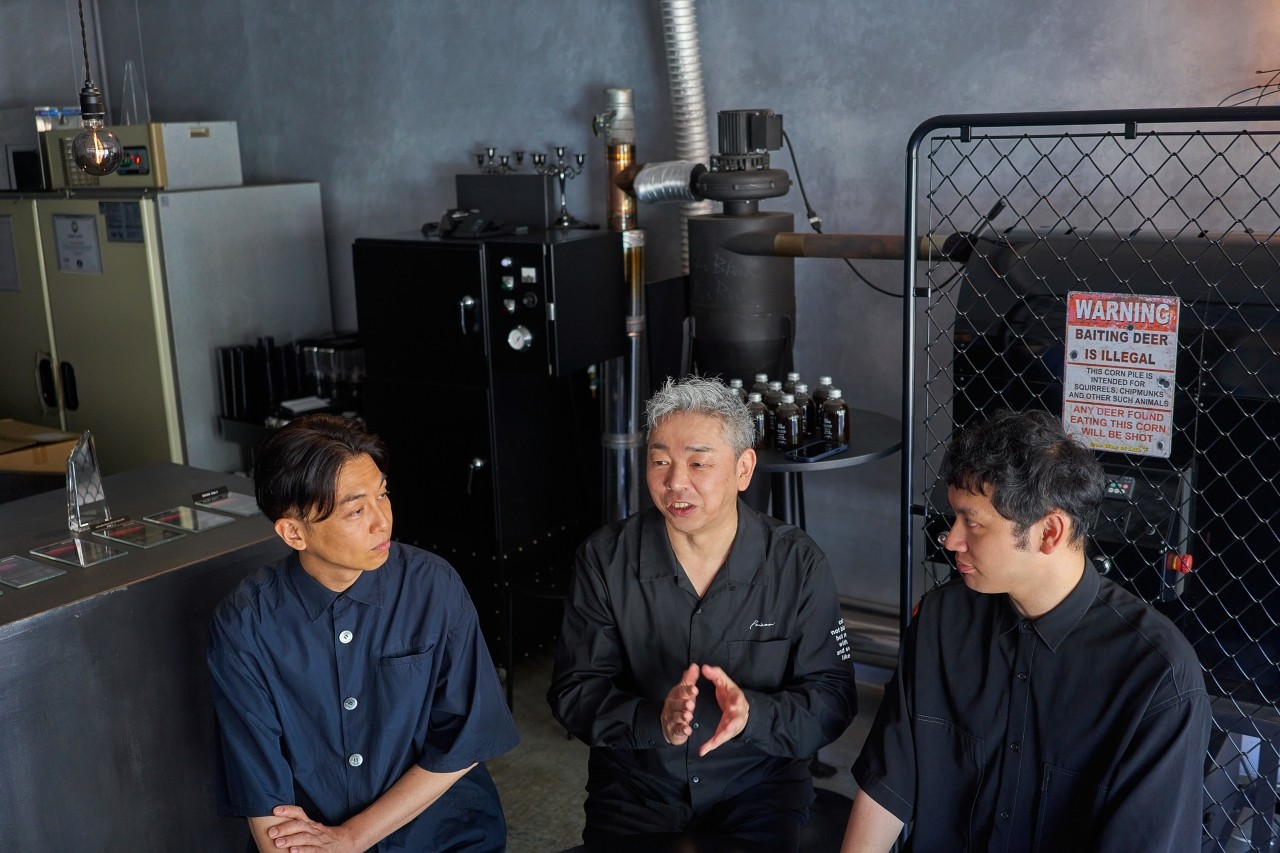
What are your impressions of the Esmeralda Special?
Usukura : What kind of image did you have of Esmeralda Farm?
Morifuji : For me, Geisha from Esmeralda Farm is the standard for Panamanian Geisha . We are also currently selling Panamanian Geisha , and we have Mostanaerobic from Abu Coffee (Farm) in our lineup.
Ishiya: I went to Abu in April, and I really felt the personality of the farm owner.
Morifuji : Wow, you went there!
Usukura : I think everything in Panama is wonderful, but do you have a favorite farm?
Ishiya: It's hard to choose just one (laughs). But each farm owner has their own ideas about how they make their fields, so it was great to hear about it and see it.
Morifuji : For me, Geisha from Esmeralda Farm is the standard for Panamanian Geisha . We are also currently selling Panamanian Geisha , and we have Mostanaerobic from Abu Coffee (Farm) in our lineup.
Ishiya: I went to Abu in April, and I really felt the personality of the farm owner.
Morifuji : Wow, you went there!
Usukura : I think everything in Panama is wonderful, but do you have a favorite farm?
Ishiya: It's hard to choose just one (laughs). But each farm owner has their own ideas about how they make their fields, so it was great to hear about it and see it.
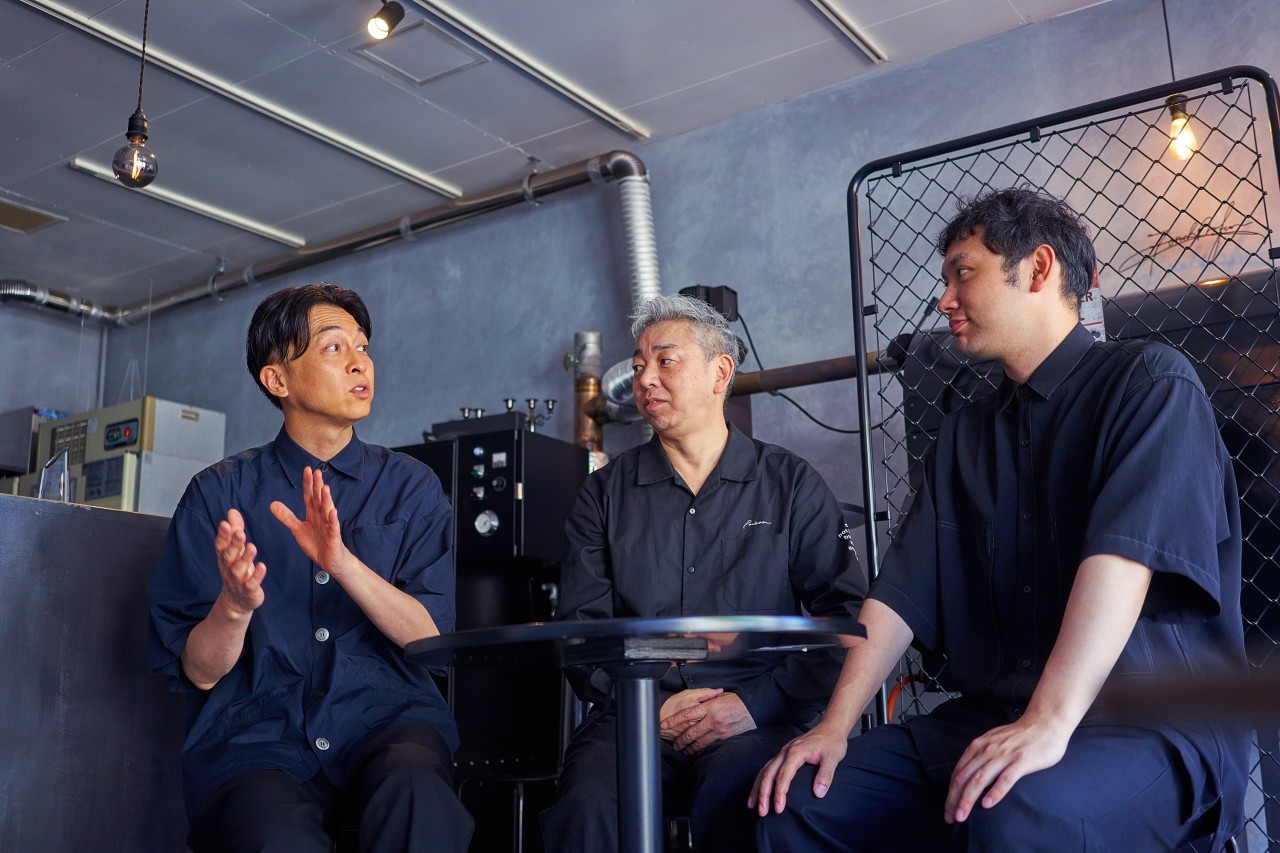
Usukura : Is Panama more advanced than other countries?
Ishitani: Rather than being advanced, I get the impression that they are growing coffee in harmony with the environment. Countries like Colombia are more proactive in developing processing technology and research. The farmers in Panama have rooted Geisha in the terroir, so I got the impression that they value that kind of thing.
Usukura : Were Geisha at Esmeralda Farm any different from regular Geisha ?
Morifuji : I think this coffee has a lot of sweetness and body to begin with, so I stopped roasting it earlier this time, thinking it would be better to bring out the citrus a little more. It's a coffee that could do with a shorter development period. There is a tendency for washed coffee to have a shorter development period, and for natural coffee, it's better to add more in some cases, but this time, it was surprising that it was a short development period, even though it was a natural coffee.
Usukura : This is just a guess, but why was it good that it was short?
Morifuji : With Panama Geisha , we felt that we needed to drain the water properly, and it seemed to me that the water drained out surprisingly quickly. The flavor is already there even without that much development. If you drain the water quickly, the development starts before the first goby arrives. I think that's why it was finished so quickly.
Ishitani: Rather than being advanced, I get the impression that they are growing coffee in harmony with the environment. Countries like Colombia are more proactive in developing processing technology and research. The farmers in Panama have rooted Geisha in the terroir, so I got the impression that they value that kind of thing.
Usukura : Were Geisha at Esmeralda Farm any different from regular Geisha ?
Morifuji : I think this coffee has a lot of sweetness and body to begin with, so I stopped roasting it earlier this time, thinking it would be better to bring out the citrus a little more. It's a coffee that could do with a shorter development period. There is a tendency for washed coffee to have a shorter development period, and for natural coffee, it's better to add more in some cases, but this time, it was surprising that it was a short development period, even though it was a natural coffee.
Usukura : This is just a guess, but why was it good that it was short?
Morifuji : With Panama Geisha , we felt that we needed to drain the water properly, and it seemed to me that the water drained out surprisingly quickly. The flavor is already there even without that much development. If you drain the water quickly, the development starts before the first goby arrives. I think that's why it was finished so quickly.
Morifuji aims to create coffee that "many people will find delicious"
Usukura : Ishitani-san, you have tried Esmeralda Specials from other roasters as part of this project. What impressed you the most this time?
Ishiya: The texture is thick and creamy. It's surrounded by Shin , but there's Geisha inside. It's also like syrup. It's not too heavy, so it has a strange texture. People who don't like sourness can drink it, and people who like bitterness can drink it with satisfaction. It's refreshing, but the aftertaste is long, so it's satisfying to drink, and you can feel like you're drinking coffee.
I think this coffee really reflects what you said earlier about "a lot of people finding it delicious." It's rich but easy to drink, clean but strong... That's why my mind is so busy (laughs).
Ishiya: The texture is thick and creamy. It's surrounded by Shin , but there's Geisha inside. It's also like syrup. It's not too heavy, so it has a strange texture. People who don't like sourness can drink it, and people who like bitterness can drink it with satisfaction. It's refreshing, but the aftertaste is long, so it's satisfying to drink, and you can feel like you're drinking coffee.
I think this coffee really reflects what you said earlier about "a lot of people finding it delicious." It's rich but easy to drink, clean but strong... That's why my mind is so busy (laughs).
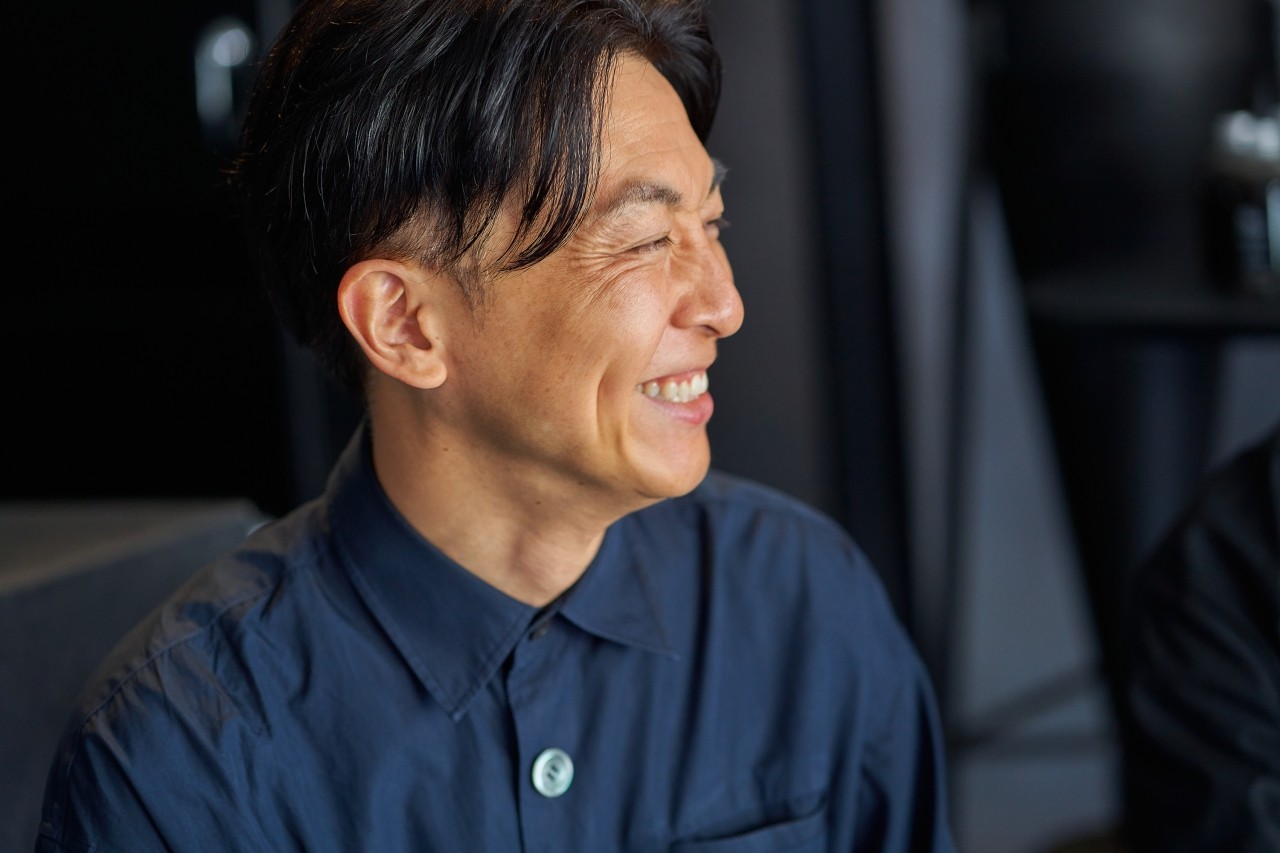
Morifuji : What Ishitani-san said is what I am aiming for too. I want as many people as possible to enjoy this wonderful thing and realize that coffee is delicious.
Because it's summer, I want a citrus taste, but I also want to bring out the sweetness, so I proceeded while thinking about how to balance that. Also, I want people who are drinking light roast for the first time to think it's delicious, and I have a lot of desires within me.
Usukura : That kind of feeling is important.
Morifuji : Our roasting methods have changed a lot since we opened this shop five years ago. But the flavor we're aiming for remains the same. I think it's all about what approach is best to achieve that ambitious ideal we just mentioned.
Because it's summer, I want a citrus taste, but I also want to bring out the sweetness, so I proceeded while thinking about how to balance that. Also, I want people who are drinking light roast for the first time to think it's delicious, and I have a lot of desires within me.
Usukura : That kind of feeling is important.
Morifuji : Our roasting methods have changed a lot since we opened this shop five years ago. But the flavor we're aiming for remains the same. I think it's all about what approach is best to achieve that ambitious ideal we just mentioned.
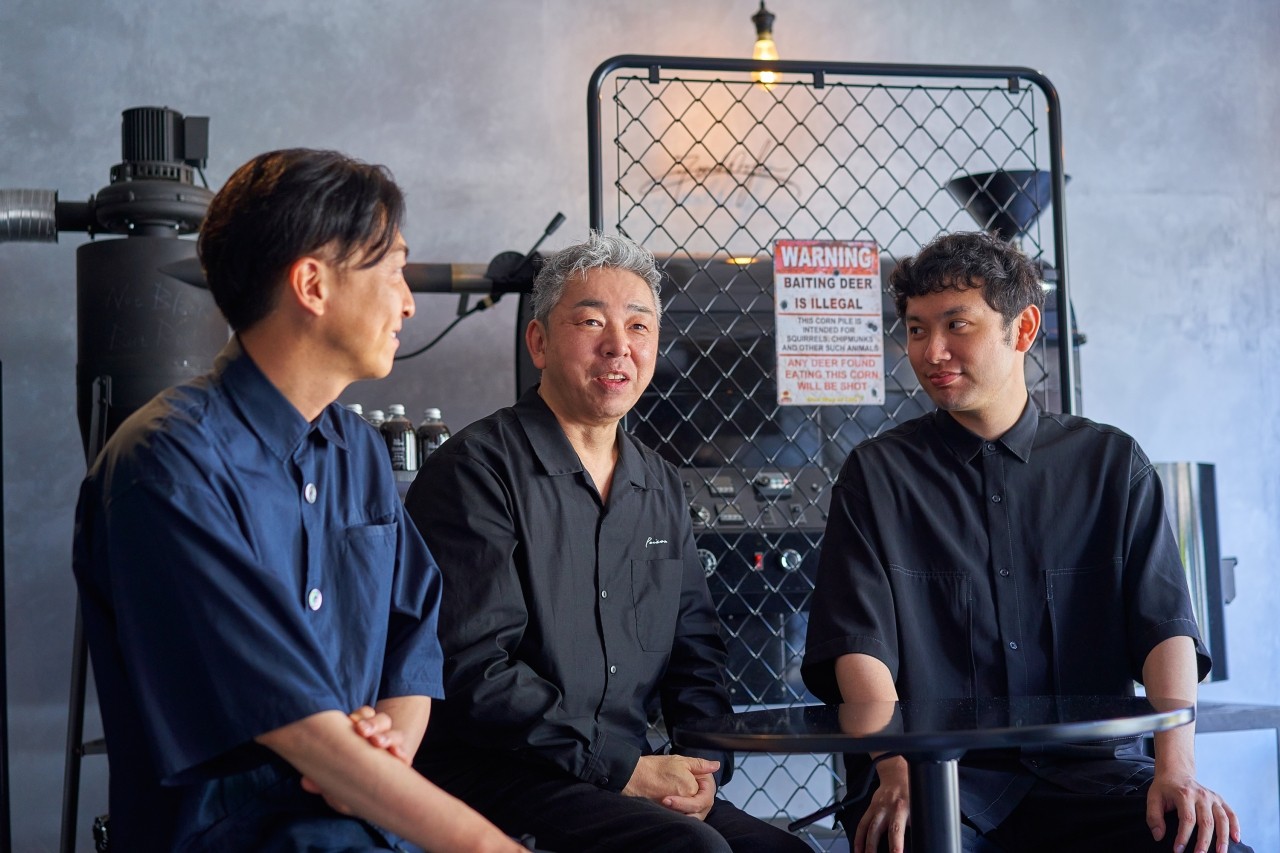
Usukura : What was the trigger that made you strive for the ideal taste, such as a thick texture?
Morifuji : I'm not good at communicating, but I unconsciously try to make coffee that can be understood even if you can't speak a word. I have a unique sense of style, so people sometimes shy away from me, which is why I want to become a kind person (laughs).
I used to work in design, but this shop is the first one I made 100% as a hobby. However, there are some people who are scared to come after seeing it on Instagram, so I want to tell them that it's not like that with coffee (laughs).
Usukura : That's a nice contrast (laughs).
Morifuji : I'm not good at communicating, but I unconsciously try to make coffee that can be understood even if you can't speak a word. I have a unique sense of style, so people sometimes shy away from me, which is why I want to become a kind person (laughs).
I used to work in design, but this shop is the first one I made 100% as a hobby. However, there are some people who are scared to come after seeing it on Instagram, so I want to tell them that it's not like that with coffee (laughs).
Usukura : That's a nice contrast (laughs).
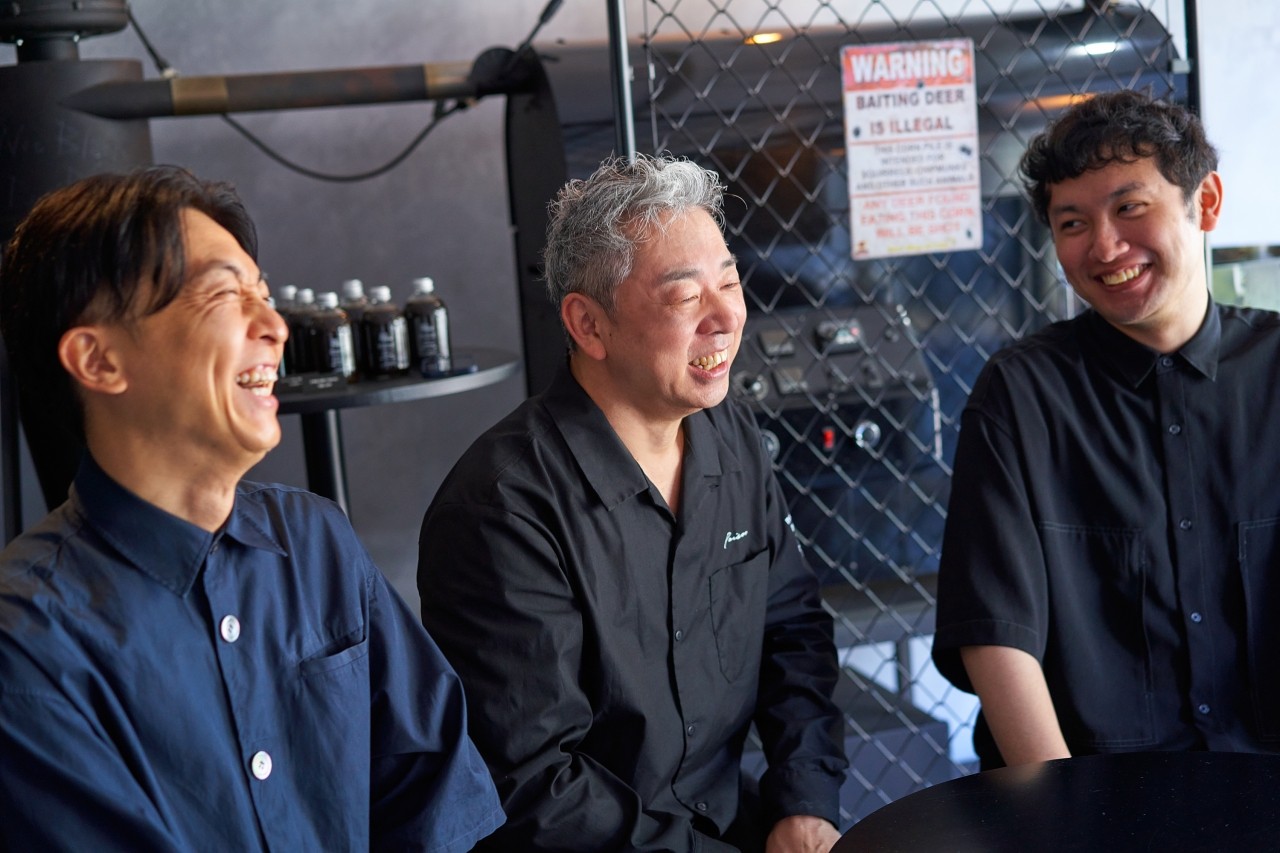
What is the recommended extraction method?
Morifuji : I think that no matter how you brew it, it will be easy to drink and tasty. Originally, we only sold it online, so we aimed to make it taste good no matter how you brew it.
Ishiya: My impression is that it will be delicious no matter who makes it or how they make it. The texture is really good, and no matter how you make it, it will have a thick consistency, so the flavor that comes out will be a little different, but I think it will be delicious to drink.
When I make coffee, I also pay the most attention to the texture, but I think it's fine to create the texture and say that the flavor that comes out today is the one. Coffee with a good texture is easy to extract, and it's also worth extracting. Today, when I took my first sip, I thought this was easy to extract.
Ishiya: My impression is that it will be delicious no matter who makes it or how they make it. The texture is really good, and no matter how you make it, it will have a thick consistency, so the flavor that comes out will be a little different, but I think it will be delicious to drink.
When I make coffee, I also pay the most attention to the texture, but I think it's fine to create the texture and say that the flavor that comes out today is the one. Coffee with a good texture is easy to extract, and it's also worth extracting. Today, when I took my first sip, I thought this was easy to extract.
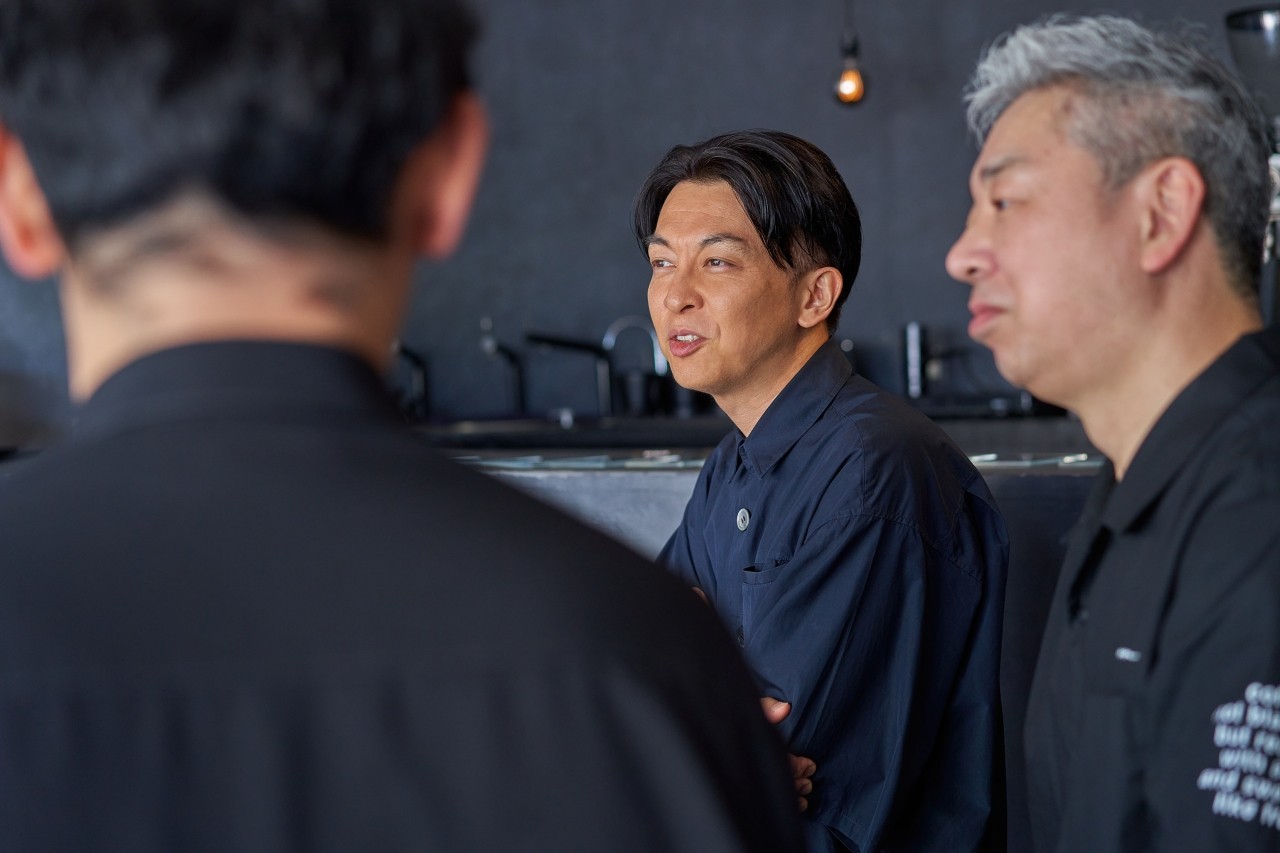
Morifuji : When we serve it in the restaurant, we use what's called a Clever Dripper, an immersion-type dripper, but we follow the cupping protocol and don't manipulate the flavor during extraction so that customers can enjoy the pure, default taste.
If you have to make it a certain way, it limits the ways you can enjoy it, and in some cases it might not taste as good unless you brew it that way, which is a shame. I want it to taste good no matter how you brew it, and whether you use a filter, French press, or espresso, I think it's easy to extract as long as the beans are reasonably good.
If you have to make it a certain way, it limits the ways you can enjoy it, and in some cases it might not taste as good unless you brew it that way, which is a shame. I want it to taste good no matter how you brew it, and whether you use a filter, French press, or espresso, I think it's easy to extract as long as the beans are reasonably good.
I want to roast my own coffee beans
Usukura : Are there any brands or farms you would like to roast in the future?
Morifuji : This may be an extreme idea, but the thing I would most like to roast is coffee that I've grown myself.
Whether it tastes good or not is aside, I harvest the beans myself at the farm, select them myself, and roast the green beans myself. It's becoming possible to produce coffee domestically, and I'd like to be able to do so in the future.
Morifuji : This may be an extreme idea, but the thing I would most like to roast is coffee that I've grown myself.
Whether it tastes good or not is aside, I harvest the beans myself at the farm, select them myself, and roast the green beans myself. It's becoming possible to produce coffee domestically, and I'd like to be able to do so in the future.
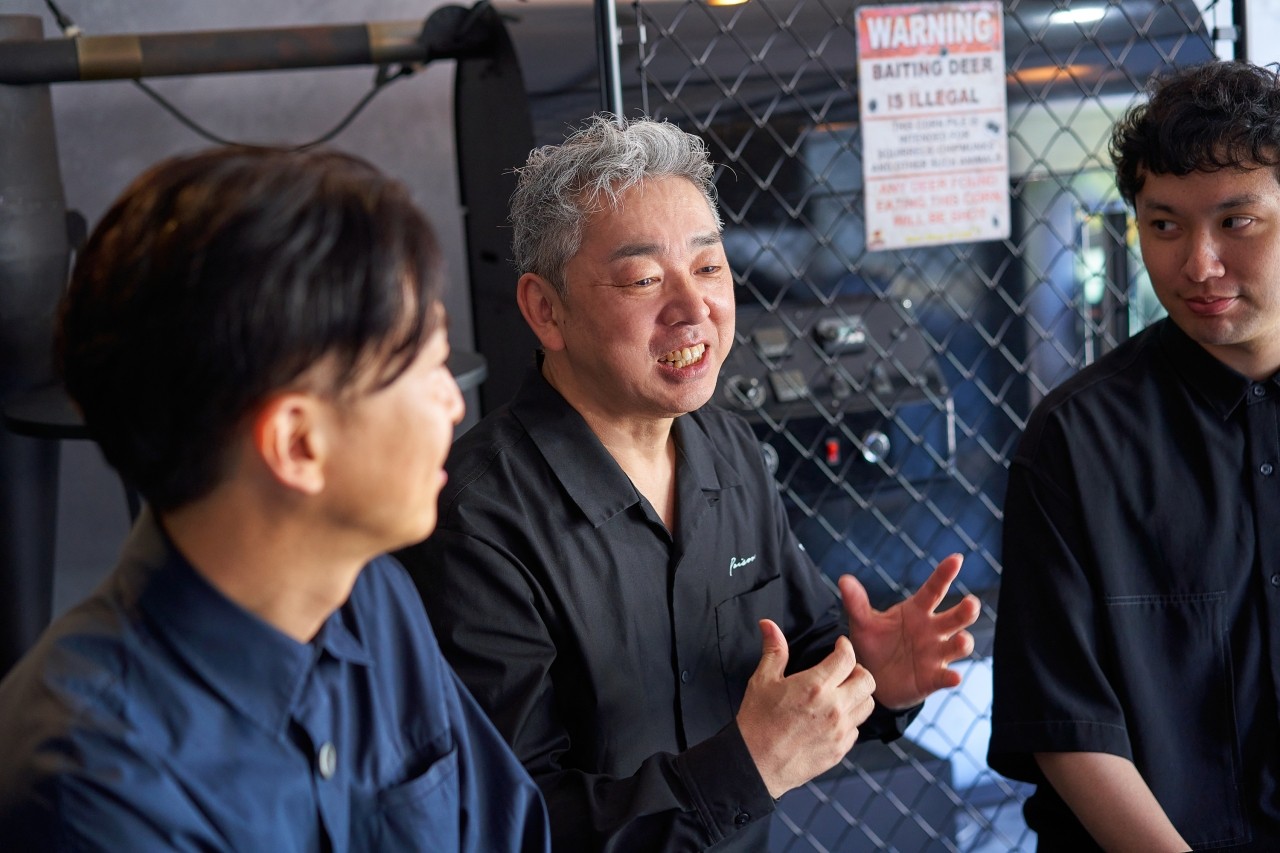
Usukura : What was the trigger that made you want to make everything yourself?
Morifuji : I've always loved making things, and there are many things from big things like architecture to small things like jewelry, but when I went to art school I chose jewelry. I wanted to experience making things myself, one of the things from 1 to 10.
Usukura : I think there are many people who want to try it but can't take action.
Morifuji : I believe that you can only Manabu through failure, and I actually quite like failing. When you think you've failed, there's always a seed of success ahead, and that's why I got into coffee. I roast Manabu myself, so I've failed many times.
Usukura : It's trial and error.
Morifuji : You won't know until you try it. The only way is to try it and experience it for yourself.
Ishiya: There are many aspects of extraction that you won't know until you try it. I'll try my best with trial and error too (laughs).
Morifuji : I've always loved making things, and there are many things from big things like architecture to small things like jewelry, but when I went to art school I chose jewelry. I wanted to experience making things myself, one of the things from 1 to 10.
Usukura : I think there are many people who want to try it but can't take action.
Morifuji : I believe that you can only Manabu through failure, and I actually quite like failing. When you think you've failed, there's always a seed of success ahead, and that's why I got into coffee. I roast Manabu myself, so I've failed many times.
Usukura : It's trial and error.
Morifuji : You won't know until you try it. The only way is to try it and experience it for yourself.
Ishiya: There are many aspects of extraction that you won't know until you try it. I'll try my best with trial and error too (laughs).
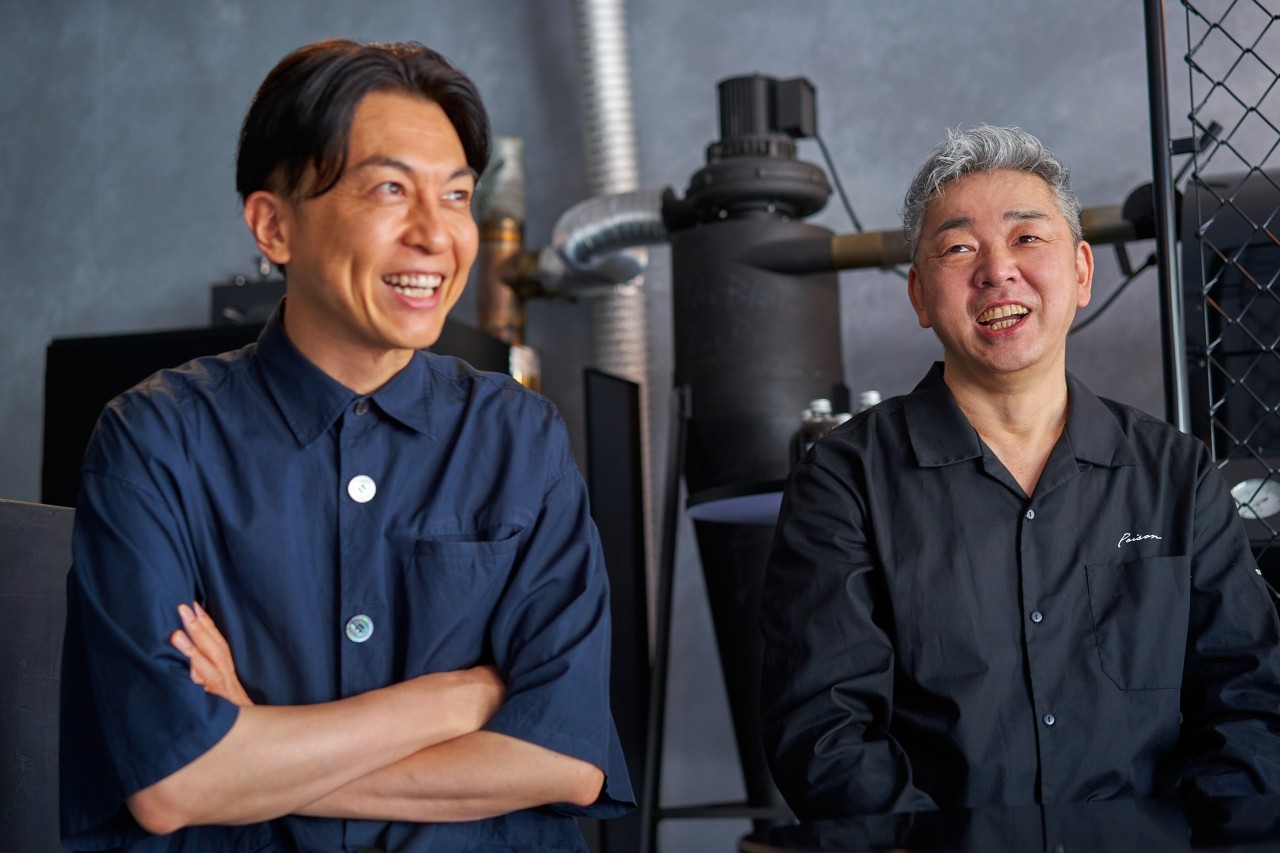
Ishiya: Today I had the opportunity to hear about Morifuji 's roasting philosophy and what he wants to convey to his customers. He has a very gentle personality, and that was reflected in the cup. It might be a little scary if you don't know anything about him (laughs), but I really empathized with his desire to deliver delicious food to his customers. It was a great experience.
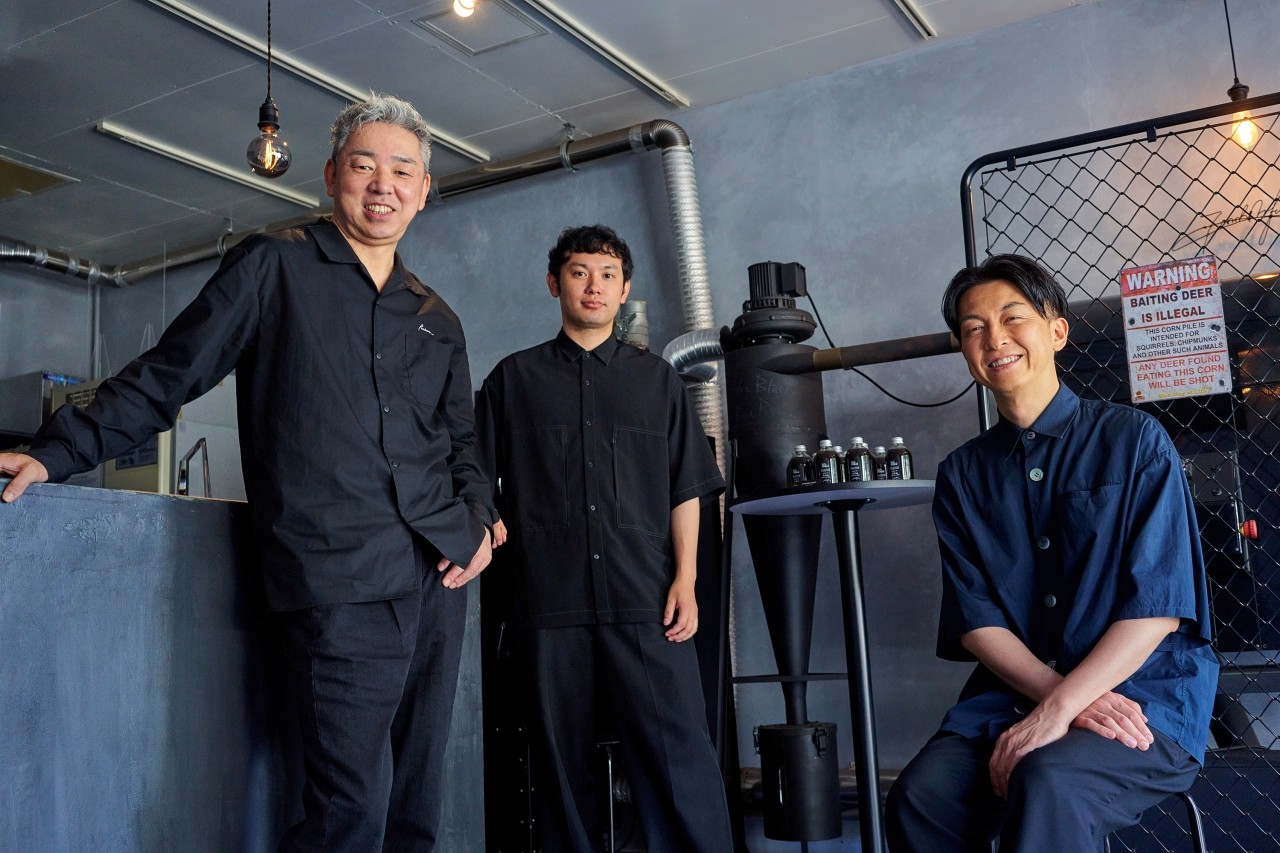
Morifuji roasted the Esmeralda Special Geisha Natural Montaña 1SN to achieve the ideal texture. The coffee has the sweetness and jasmine flavor that is unique to the Esmeralda Geisha Natural, and a silky texture that can be enjoyed until the last drop.
If you are talking about Geisha , you should try this gem of a drink, Esmeralda Geisha . Please try it and experience the aroma and flavor that will change your life.
*This item is sold out
If you want to enjoy coffee more deeply
" CROWD ROASTER APP"
Manabu at CROWD ROASTER LOUNGE
・Push notifications for article updates・Full of original articles exclusive to CROWD ROASTER
・Direct links to detailed information about green beans and roasters
App-only features
- Choose green beans and roasters to create and participate in roasting events・CROWD ROASTER SHOP: Everything from beans to equipment is readily available
・GPS-linked coffee map function

